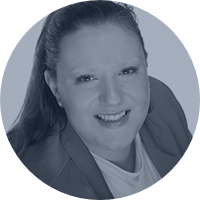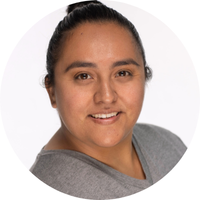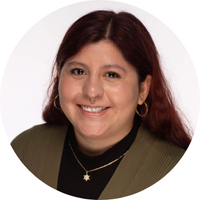Why Compass
Why Compass
A program with a purpose
Our purpose lives and breathes in the symbolism behind our name. Compass: An elegant tool that puts the power to find your true north in your hands. Without forcing you to take a single step or promising to take your steps for you. Without judgment and with an unshakeable sense of direction. Relying on a compass makes you stronger and more confident, not weaker and more dependent. A compass is your guide, not your master. And as every skilled guide knows, no journey should be undertaken without the right tools.
The path ahead will be tough. And beautiful. Frustrating, and exhilarating. You will stumble. And you will soar. It may not be easy. But with the tools and insights you’ll gain here, you will forge ahead.
We’re not your ordinary program. If you’re ready to find your way, define your why, and map out your how, we can’t wait to meet you.

A program on a mission
Defining our principles is simple. Living up to them daily is anything but.
1. Every young person deserves access to evidence-based treatment, such as DBT.
We believe that effective Evidence-based therapy should be accessible and believe that the ability to pay should not stand in the way of the ability to thrive. That’s why we go the distance to work with your insurance provider, reach whatever agreements we can, and ensure that you can utilize your benefits to cover the cost of treatment. We assign every family a dedicated financial account manager, to help you make your coverage work as hard as you do.
2. It takes a community to support stronger treatment outcomes.
We practice what we teach, living in community through weekly staff mindfulness practice, to communal meals and group exercise. At the same time, we strive to build community among our families through programs like Family Connections, Multi-Family Skills Training Groups, Compass Talent Shows, and sponsorship of community events such as the Walk Out Of Darkness for suicide prevention.
3. Let the evidence lead the way—redefine the standard for clinical excellence.
Our understanding of the human mind and human behavior never stops advancing. And neither do we. Our partnership with Duke University and the continuing education we provide through the Compass Training Institute mean that your family receives the highest caliber of evidence-based treatments at all times.
4. Open our doors—and our training—to the community.
We believe that when it comes to advancing the cause of mental health treatment, we’re all in this together. That’s why we commit ourselves to providing education to the larger Southern California community on childhood mental health issues, advocacy, and the evidence-based treatments that bring healing.
5. Multi-disciplinary and culturally-competent.
The mind is not a one-size-fits-all puzzle, so we house a multi-disciplinary, culturally-competent team committed to providing expert care to the families we serve.
Committed to excellence. And to you.
Most Compass’ Clinicians are DBT-Linehan Board of Certification, Certified Clinicians™ and calibrated DBT Adherence Coders through the University of Washington. In Compass’s commitment to excellence and quality assurance, a percentage of all Compass sessions are randomly selected and coded for adherence to the research protocol.
Compass was the first DBT-Linehan Board of Certification, Certified Program™, in California. Achieving this certification was a rigorous process that ensured our families received the “gold standard” in DBT treatment and care.
As a designated Performance Site through Duke University, we track our treatment outcomes in the pursuit of advancing the development of evidence-based treatments. Every 6 months, we measure our treatment outcomes through a standardized battery of tests. A summary of these test results is available to our families quarterly. Also, Compass is conducting a longitudinal study of its program treatment gains post-discharge as the ultimate source of accountability to our families.
Our program is a required didactic block in Dialectical Behavioral Therapy for UCI Medical School psychiatrists in training. This lecture series will help psychiatrists incorporate DBT skills into their practice so that all forms of treatment can work together. Compass is also a selected Practicum Training Site for Columbia University’s Graduate School of Social Work, training the next generation of mental health care professionals.

Compass Treatment Outcomes:
What the Evidence Tells Us
The evidence is clear: Compass works! From our patients’ first day at Compass to the 6-month mark in their treatment journey, the results show marked reduction across the board in depressive symptoms, suicide severity/risk, emotion dysregulation, identity dysregulation, and borderline symptoms.
Our patients continue to make progress in every single one of these areas 6-12 months into treatment. In many areas, average scores approach or fall below the non-clinical range, where we would consider a patient’s symptoms as being “normal” and not in need of treatment.
Empirical Evidence of Effective Treatment at Compass
Data collected 2016-2019
MEASURE OF DEPRESSIVE SYMPTOMS

MEASURE OF IDENTITY DYSREGULATION

MEASURE OF EMOTION DYSREGULATION

MEASURE OF SUICIDE SEVERITY & RISK

MEASURE OF BORDERLINE SYMPTOMS

MEASURE OF BORDERLINE SYMPTOMS

Summary & Conclusions: All measures graphed above are standardized, validated, commonly used assessments that are administered to our patients at intake and every 6 months after throughout the course of treatment. This is one of our main ways of assessing severity of symptoms across a variety of areas and of tracking treatment outcomes to ensure that treatment is working. The graphs show treatment outcomes at intake, 6, and 12 months into treatment for all people who have consented to be part of our research study (approved by the Duke University Institutional Review Board).
The results show marked reduction across the board in depressive symptoms, suicide severity/risk, emotion dysregulation, identity dysregulation, and borderline symptoms from intake to 6 months into treatment. The results also show that our patients continue to make progress in all of these areas from 6 to 12 months into treatment. Moreover, these are not just numbers; as treatment progresses scores are approaching (and in several areas dipping below) clinical “norms,” meaning that symptoms are nearing a non-clinical range. This evidence directly from our clinic provides evidence that DBT at Compass does work!
Primary Treatment Target Data
Collected from diary cards
ACTIVE SUICIDAL IDEATION

PASSIVE SUICIDAL IDEATION

SELF-HARM

NEGATIVE SELF-JUDGMENTS

Summary & Conclusions: Our new medical record system allows us to track precise data from session to session. Results show that our kids have significant reduction of life-threatening behaviors over the course of the first 7-8 months of treatment. The biggest treatment gains were made within the first 6 months, and these gains were maintained over the next few months while other targets became the focus of treatment.
Other Noteworthy Conclusions from our Clinic:
- Drastic reduction in suicide behaviors (e.g., planning, accessing means, writing suicide notes, suicide attempts) across patients:
- 0-10 range reported at time of intake
- <10% of patients reported suicide behaviors during first 12 months of treatment
- Kids achieve better treatment outcomes if their family participates in Multifamily Group:
- Significantly lower borderline symptoms
- Significantly lower identity dysregulation
- Family therapy enhances treatment outcomes
- Lower identity dysregulation & depression
- Skills coaching makes a difference!
- Lower identity dysregulation, lower borderline symptoms, & depression
Note: Data analyzed from patients who consented to be part of our study. At this time, our sample size is too small to make broad generalizations and to test for significant differences in some cases. We plan to continue tracking data over time to determine if these trends prevail.
Clinical Team

Cherie Mills
EXPEDITION LEADER / EXECUTIVE DIRECTOR
Licensed Marriage, Family Therapist
(LMFT #40443)
DBT-Linehan Board of Certification,
Certified DBT Clinician™

Dr. Clive Robins, Ph.D.
DIRECTOR OF COMPASS
TRAINING INSTITUTE
Licensed Clinical Psychologist
(License No. 1421)
DBT-Linehan Board of Certification,
Certified DBT Clinician™

Dr. Nicole Motakef, D.O.
COMPASS RTC MEDICAL DIRECTOR
Medical License in California
(License No. 20A16793)
Board certified in General Psychiatry by American Board of Psychiatry and Neurology
Board Certified in Child & Adolescent Psychiatry

Matt Reino
Outpatient Clinic Director
Licensed Marriage and Family Therapist (LMFT #97638)
DBT-Linehan Board of Certification, Certified DBT Clinician™

Angel Amaro
RESIDENTIAL CLINICAL DIRECTOR
Licensed Clinical Social Worker
(LCSW #107743)

Marissa Colangelo
Associate Director of Training AND
Lead Clinical Supervisor for Master-Level Clinicians
Licensed Clinical Social Worker
(LCSW #78805)
DBT-Linehan Board of Certification,
Certified DBT Clinician™

Megan Plakos Szabo
ASSOCIATE DIRECTOR OF RESEARCH
Licensed Marriage and Family Therapist (LMFT #98658)
DBT-Linehan Board of Certification, Certified DBT Clinician™

Dr. Nicole Zaha, Psy.D.
Associate Director of
Post Doctoral Training
Licensed Clinical Psychologist
(Lic. PSY29916)
DBT-Linehan Board of Certification, Certified Clinician™

Naoki Hemmi
Program Clinician
Licensed Clinical Social Worker
(LCSW #107590)
DBT-Linehan Board of Certification, Certified DBT Clinician™

Erin Bray, Ph.D.
Program Clinician
Licensed Psychologist
(PSY #27381)

Natalie Martinez
Program Clinician
Licensed Clinical Social Worker
(LCSW #115122)
Residential Treatment Team

Crystal Overstreet
PROGRAM MANAGER

Aubree Farrell
Clinical Milieu Supervisor

Sydney Heglund
Program Guide

Jenna Gotte
Program Guide

Riley Woo
Program Guide

Priscilla Fung
Program Guide

Chip Solomon
Program Guide

Sam Villanueva
Program Guide

Sasha Millice
Certified Eating Disorders Registered Dietitian
Pablo Figueroa
Resident Chef

Ashley Arroliga
Yoga Instructor

Ravon Hardy
Fitness Trainer
Administrative Team

Kellie Severin
Operations Manager

Elizabeth Gonzalez
Billing Department Manager

Ashley Ikai
FINANCIAL ACCOUNT MANAGER

Johanna Severin
Claims Analyst

Melody Sadowski
Project Specialist

Mai Lai
IT Coordinator

Aubree Farrell
CLINICAL MILIEU SUPERVISOR
HER STORY
Aubree is born and raised in Orange County, California. When she was in 8th grade, she was able to go on a trip to British Columbia, Canada. Her love for the scenery and her experience there led to her eventually attending university in B.C. She graduated from Trinity Western University (British Columbia, Canada) in 2021 with a B.A. Degree in Psychology and a Human Services Certificate (Honors). Aubree plans to continue her education in the field of mental health, hoping to become a therapist. As a Program Guide, Aubree brings her clinical training and experience to manage a truly therapeutic milieu for our residential program. Aubree has over 2 years of experience in residential care, coming from a 24-bed facility. She is in a 2-year DBT Training Externship through the Compass Research & Training Institute.
HER TRAINING & SUMMITS
Aubree has completed various certifications and training programs, including:
-
Listen Up! Active Listening Workshop
-
Undergraduate Psychology Honours Thesis
-
Youth Mental Health First Aid
-
Humans Service Certification
-
First Aid/BLS Certification
She has also participated in internships and volunteer work, such as:
-
CARES Counselling Services (non-profit), where she facilitated staff photo updates and managed an auction fundraiser.
-
Langley Lodge Senior Living, where she provided one-on-one support sessions for seniors at risk for social isolation.
 HER TRUE NORTH
HER TRUE NORTH
Aubree is passionate about helping others feel loved and cared for . In their free time, she enjoys doing anything creative, playing chess, finding a fun solo adventure and spending quality time with family and friends.

MK Butler
PROGRAM GUIDE
HER STORY
Originally from Texas, Mikayla obtained her undergraduate degree from Concordia University Irvine where she served for two years in the residential services department as a resident assistant and as a captain for the university’s track & field team. From these roles she was able to fulfill her love for uplifting others and helping them meet their goals, bridging the gap between human connection and finding that there is strength to be gained in learning from different worldviews and backgrounds. She coordinates Horticulture Group here at Compass and is within her first year of working in mental health, exclusively.
HER SUMMITS
-
Bachelor of Arts in Psychology Certified in basic life support / CPR
-
Certified in non-violent crisis prevention and intervention
-
Currently pursuing MA in Clinical Counseling
 HER TRUE NORTH
HER TRUE NORTH
Mikayla is an energy bunny who loves hiking on the weekends and snuggling up with a good book and cup of tea. She lives by the quote from Maya Angelou, “Be a rainbow in someone’s cloud.” Through genuine interconnection between humans and further training, Mikayla dreams of bringing a holistic approach to community health, with her sights set on the homeless population having access to mindfulness resources and stable infrastructure. In tandem, public speaking and podcasting about human experience and spreading mental health awareness through this medium is a big part of her turning pain into purpose. In her off time, she loves to analyze movies and music, play guitar, write poetry, cook new recipes, and cry happy tears over pretty sunsets.

Crystal Overstreet
PROGRAM MANAGER
HER STORY
Crystal is a Los Angeles native, who loves her hometown. She graduated from California State University, Northridge with her degree in Psychology. While in undergraduate Crystal began working for a start-up nonprofit organization that ran homeless shelters, after leaving her position as an operations facilitator. After obtaining her degree Crystal continued to work for the nonprofit helping them build several homeless shelters, and temporary housing programs. Crystal plans on continuing her education to become a Licensed Clinical Therapist. Crystal brings to her role of Program Manager over ten years of experience designing, building, and directing housing programs. Before bringing her talents to Compass, Crystal single handedly built out a 9-bed transitional housing program. Crystal is excited to be enrolled in the DBT Training Externship at Compass which will help increase her skill set in the mental health realm.
HER SUMMITS
- Six Sigma Green Belt
- Dale Carnegie Leadership Training Graduate
- Trauma Informed Care Leadership Certification
- LEAN Certification
 HER TRUE NORTH
HER TRUE NORTH
Crystal is very passionate about advocating for the underserved and underprivileged. She takes advantage of any opportunity to assist her community by advocating for mental health services, and housing stability. In her free time, she enjoys being a wife and mother to her three children, and spending time with her friends.

Priscilla Fung
PROGRAM GUIDE
HER STORY
I was born and raised in Hong Kong, which has shaped my ability to engage with individuals from diverse cultural and linguistic backgrounds. I earned my Bachelor of Arts in Psychology with a Minor in Education from the University of California, Irvine, and I am currently pursuing a three-year Master of Science degree in Clinical Psychology at Vanguard University. My experience includes volunteering at a private psychiatric clinic in an administrative role and supervising children at a summer camp. My ultimate goal is to become a Licensed Marriage and Family Therapist (LMFT) and continue serving a diverse community within the mental health field.
HER SUMMITS
-
Currently pursuing a Master of Science in Clinical Psychology at Vanguard University
-
Certified in Adult/Child CPR and Advanced First Aid
-
Conducted research at UCI’s HABLA (Human Abilities in Bilingual Language Acquisition) Lab, focusing on challenges faced by bilingual elementary students in English and Spanish, with findings presented at UCI’s UROP in 2024
 HER TRUE NORTH
HER TRUE NORTH
In my daily life, I love reading my Bible and going on prayer walks to draw closer to Jesus, which help me stay grounded and grateful. I love spending time in nature, whether it’s exploring new hiking trails, running, or snowboarding. I also enjoy playing volleyball and making matcha!

Crystal Overstreet
PROGRAM MANAGER
HER STORY
Coming Soon
HER SUMMITS
Coming Soon
 HER TRUE NORTH
HER TRUE NORTH
Coming Soon

Denisse Lopez
PROGRAM GUIDE
HER STORY
Denisse transferred from Santa Ana College before earning her Bachelors in Psychology & Social Behavior from the University of California, Irvine. Throughout her undergrad, Denisse’s research interests focused on LGBT Health, Human Sexuality, and Stigma. Before working at Compass, she was a Lead Behavioral Technician working with children (2-16 yrs old) with developmental disabilities and diagnoses such as Autism, Oppositional Defiant Disorder, and Attention-deficit/hyperactivity disorder (ADHD). Throughout her Master’s program, Denisse’s research interests transformed into how Acceptance and Commitment Therapy (ACT), Dialectical Behavior Therapy (DBT) and Applied Behavior Analysis (ABA) are connected to the field of Trauma, LGBT Health, and Stigma. Currently, these experiences and research interests have shaped her into pursuing the mental health field through the lens of DBT.
HER SUMMITS
- Bachelors in Psychology & Social Behavior from the University of California, Irvine
- Masters in Special Education with a concentration in Applied Behavior Analysis from Arizona State University
- Currently in progress with completing a Certificate in Traumatic Stress Studies from the Trauma Research Foundation
 HER TRUE NORTH
HER TRUE NORTH
During her free time, Denisse enjoys spending time with her partner by going on hikes, watching movies, and going on walks with their dog. She also enjoys listening to music and going down a research rabbit hole in moments of creativity and inspiration.

Frances Li
PRACTICUM STUDENT
HER STORY
Frances is a PhD student in Clinical Psychology at the University of California, Irvine. Aspired to be a clinical scientist, Frances is passionate about supporting individuals both with clinical service and research. Her current research involves identifying ways in which adversity influence multiple generations in a family and using these findings as targets to promote resilience. Prior to Compass, Frances was a practicum student at the UCI Psychological Services Center, providing psychological assessments and interventions (using modules of DBT, CBT, and ACT) to adults in the community. She was previously a Clinical Research Coordinator at McLean Hospital, leading cross-institutional clinical research efforts. Frances is enthusiastic about supporting adolescents, young adults, and their families in finding and building a life worth living.
HER SUMMITS
- B.A. in Psychology and Social Behavior from University of California, Irvine
- B.A. in Education Sciences from University of California, Irvine
- M.Ed. in Human Development and Psychology from Harvard Graduate School of Education
- M.A. in Psychological Science from University of California, Irvine
- Doctoral student (3rd year) in Clinical Psychology at University of California, Irvine
- Completed four-day DBT Foundational Training at Compass Training Institute
- Completed two-day workshop on Emotionally Focused Therapy at UCI Department of Psychiatry & Human Behavior
- Completed one-day workshop on Veteran Cultural Competency at UCI Department of Psychological Sciences
- Co-authored five peer-reviewed scholarly articles
 HER TRUE NORTH
HER TRUE NORTH
Frances enjoys being active outdoors (tennis, running, kayaking) with friends and family, preferably towards/after sunset (she’s a night owl). She also loves car detailing, interior designs, animals, sitcoms, and discovering new restaurants & cafes.

Sydney Heglund
Program Guide
HER STORY
Sydney graduated from California State University Fullerton in 2023. During her time in college, she majored in psychology and was deeply interested in both biological and social psychology. Sydney has always been interested in human behavior, working directly with people across various different settings. During career exploration, Sydney decided that supporting mental wellness was her true passion. She began working at a children’s counseling center, focused on treating neuro-biological and mental illnesses. During this role, Sydney supported clients reach therapeutic goals and practice mindfulness techniques.
Sydney values vulnerability, connection, and empathy within her interpersonal relationships. She advocates for healthy boundary setting and effective communication during challenging moments.
 HER TRUE NORTH
HER TRUE NORTH
During her time off, you can find her studying, creating new recipes, and hosting intimate gatherings to connect with her friends. Sydney hopes to one day open an animal sanctuary with the purpose of educating children about compassionate animal treatment and the therapeutic benefits they possess. She also attends National University’s Counseling Graduate program with the goal of becoming an LMFT.

Arianna Sanchez
Program Guide
HER STORY
Arianna earned her Bachelor of Science in Psychology with a minor in Women, Gender, and Sexuality Studies from Pennsylvania State University. She is currently pursuing her Master of Science in Counseling Psychology with a specialization in Children and Adolescents at Azusa Pacific University.
During her time at PSU, she was an undergraduate research assistant for a Gene and Environment Interplay lab study. She then gained clinical experience providing crisis intervention and emotional support as a hotline counselor and fielding calls from the National Suicide Hotline. Arianna assessed suicide risk, created safety plans, and connected callers to basic needs resources. Most recently, her time at APU has allowed Arianna the opportunity to participate in two, 1-week bereavement camps for children and adolescents, where she was able to utilize skills in play therapy, child development, and grief therapy.
Additionally, Arianna delivered counseling and support to at-risk adolescent girls as a residential counselor in a maternal group home setting. She ensured treatment goals were implemented through collaboration with a clinical treatment team. Most recently, Arianna served as a Crisis Intervention Specialist at a mental health urgent care, where she screened and assessed walk-in clients for emergency psychiatric services and provided counseling and case management services.
Her employment and education experiences have sparked Arianna’s passion for community mental health, harm reduction, and social justice approaches to collective wellbeing in her community.
HER SUMMITS
-
Actively pursuing Master of Science in Psychology at Azusa Pacific University
-
Bachelor of Science in Psychology from Pennsylvania State University
-
Trained in Applied Suicide Intervention Skills, Columbia – Suicide Severity Rating Scale, Nonviolent Crisis Prevention, AED, Adult/Child/Infant CPR, and First Aid
 HER TRUE NORTH
HER TRUE NORTH
When Arianna is not occupied with work or schoolwork, she can be found with her nose in a book. She enjoys spending her free time visiting local bookstores, hiking, taking nature walks, and attending concerts. She loves the Los Angeles Dodgers and attends as many games as she can. Arianna is also passionate about social justice, advocacy, and mental health and works with local advocacy organizations within Los Angeles County.

Riley Woo
Program Guide
HER STORY
Riley is a graduate of the University of California, Irvine, where she earned her Bachelor’s degree in Psychological Science in 2023. Ever since she was 13, Riley has been passionate about becoming a therapist, driven by a desire to help others feel less alone on their mental health journeys. Now, she’s pursuing that dream at California State University, Long Beach, where she’s working toward her Master’s in Counseling Psychology with the goal of becoming a Licensed Marriage and Family Therapist.
Riley’s professional journey includes two years of hands-on experience working in residential mental health treatment for adults, where she supported individuals with mental health challenges, under direct supervision of the Chief Clinical Officer. Through this work, she developed a deep appreciation for the impact of secure attachments on emotional well-being and is committed to becoming an attachment-focused therapist. Riley believes that fostering safe, supportive connections can be transformative, and she’s dedicated to helping clients develop healthier relational patterns as part of their healing journey.
HER SUMMITS
- Former research assistant at the UC Irvine Trauma and Resilience Lab
- Founder of the Graduate Peer Support Group at Cal State Long Beach
- Completed 40-hour Domestic Violence Advocacy Training Women Shelter of Long Beach
- Certified in Basic Life Support (CPR/AED/First Aid)
- Certified in QPR Suicide Prevention
 HER TRUE NORTH
HER TRUE NORTH
Riley enjoys spending her free time playing with cats at her local cat sanctuary. She also enjoys reading novels and books about mental health, rewatching tv shows, and playing video games. She is extremely dedicated to catching and evolving Pokémon in Pokémon Go. On special occasions, you can find her going out for sushi or Korean BBQ.

Chip Solomon
Program Guide
HIS STORY
Chip Solomon is a Program Guide with seven years of experience working residential programs. Born in Italy and raised in Japan, Chip had the opportunity to experience different cultures and mindsets, which greatly influenced his approach to work and life. He attended CSU Fullerton focusing on Human Communications. hip is also considering further education to expand his professional growth and opportunities.
HIS SUMMITS
- Certified in Non-Violent Crisis Prevention and Intervention
- Certified in Basic Life Support/CPR
- Academic Advisor at The Wooden Floor
 HIS TRUE NORTH
HIS TRUE NORTH
Chip is passionate about helping others, taking pride in supporting individuals as they overcome challenges and grow. He hopes to continue working with children and advance his career. Outside of work, Chip enjoys spending time with his cat, Salsa, and connecting with friends locally and in Australia. He has recently picked up archery and the harp as new hobbies. Chip lives by the motto: “Life is hard, so why make it harder?”

Sam Villanueva
Program Guide
HIS STORY
Sam completed his Bachelor of Arts in Psychology during the Fall of 2024 at California State University, Long Beach. Prior to becoming a guide at CBH, he was an art teacher and Paraeducator who provided enrichment and K-12 educational support in both General Education (GE) to Structured Autism Classrooms (SAC). He has experience leading small instructional groups, working one-on-one support with students with Autism Spectrum Disorder (ASD) as well as other neurodevelopment disorders.
HIS SUMMITS
-
B.A. in Psychology from California State University, Long Beach
-
CPR/First Aid Certified
-
QPR Suicide Prevention Training Certified
 HIS TRUE NORTH
HIS TRUE NORTH
During his free time, Sam enjoys creating digital art, making/listening to music, and skiing with family
Kit Wislocki
PRACTICUM STUDENT
HER STORY
Kit Wislocki is a clinical psychology doctoral student at the University of California, Irvine. Kit has experience working with adolescents and adults with a variety of clinical concerns such as ADHD, anxiety, depression, self-harm, suicidal ideation, trauma, and life transitions. She has previous experience working in outpatient and clinical research settings. Kit has received training in several evidence-based treatments, including CBT, DBT, and ACT. Her research focuses on the use of technology and machine learning to improve assessment and treatment for trauma-exposed populations.
HER SUMMITS
- B.A. in Political Science from the Ohio State University
- M.A. in Social Ecology from University of California, Irvine
- Doctoral student (4th year) in Clinical Psychology at the University of California, Irvine
- Completed four-day DBT Foundational Training at Compass Training Institute
- Completed one-day workshop on Veteran Cultural Competency at UCI Department of Psychological Sciences
 HER TRUE NORTH
HER TRUE NORTH
Kit enjoys cooking, reading, watching movies, and being active.

Myla Trinh
LICENSED VOCATIONAL NURSE
HER STORY
Myla has lived in Southern California all her life. She graduated from Stanbridge University in 2020. She is excited to make an impact on people’s lives.
HER SUMMITS
- Licensed Vocational Nurse
- IV/Phlebotomy license
- Trained in BLS
 HER TRUE NORTH
HER TRUE NORTH
Myla enjoys spending time with her family, friends and puppy Kona. She loves walks on the beach and traveling. She loves experiencing new things and trying different foods. In the future, she plans on becoming a Psychiatrics Nurse Practitioner.

Sean Harris
PROGRAM CLINICIAN
Licensed Clinical Psychologist (PSY #34875)
HIS STORY
Dr. Harris has been practicing in the field of Clinical Psychology for the past eight years in various settings including a youth correctional facility and multiple Community Mental Health, and outpatient settings where he worked with children, adolescents, young adults, and families that presented with an array of complex mental health concerns. Dr. Harris’ preliminary interests include conducting therapy with children, adolescents, young adults, and families in individual and group settings. Dr. Harris is passionate about supporting children, adolescents, and young adults in working towards developing skills to achieve their ‘Life Worth Living’ Goals.
HIS SUMMITS
- Bachelors in Psychology from Hawaii Pacific University, Honolulu, Hawaii
- Masters in Clinical Mental Health Counseling from Hawaii Pacific University, Honolulu, Hawaii
- Masters in Clinical Psychology from Pacific University, Hillsboro, Oregon
- Doctorate in Clinical Psychology with a specialization in working with children and adolescents from Pacific University, Hillsboro, Oregon
- Extensive training in Functional Family Therapy, Cognitive Behavioral Therapy, Dialectical Behavioral Therapy, and management of crisis and suicide for children and adults
- Extensive training in Psychological Assessment
- Completed Intensive DBT Training by Behavioral Tech trainers Randy Wolbert and Gwen Abney-Cunningham
 HIS TRUE NORTH
HIS TRUE NORTH
Dr. Harris enjoys spending time outdoors, exercising, and spending time with his family, friends, and two rescue pitties.

Christine Morrissey
PROGRAM CLINICIAN
Associate Clinical Social Worker (ASW #118711)
PROGRAM CLINICIAN
Christine’s role at Compass includes providing individual DBT treatment and skills coaching sessions, conducting DBT groups, participating in weekly team consultation, and developing the treen residential school program. Christine is intensively trained in DBT-PE (prolonged exposure) for treating individuals suffering from trauma-related disorders and traumatic invalidation. Christine also has training and experience delivering DBT for parents and families and DBT-C (DBT for children) with younger children. Christine is supervised by Marissa Colangelo, LCSW (#78805).
HER STORY
Christine comes to Compass beyond excited to blend her experience as a clinician and a special education teacher. Prior to joining Compass, Christine worked for the Child Mind Institute in New York City as a Clinical Associate Social Worker in their Mood Disorders Center treating youth, families, and young adults. Christine is a graduate of the Columbia School of Social Work (CSSW) where she received extensive training as a DBT fellow in Dr. Andre Ivanoff’s Dialectical Behavior Therapy Training Lab.
Christine first learned about DBT when she was working as a Special Education teacher in a therapeutic high school program, which led her to social work. Her students began teaching her skills they were learning in therapy, and she was truly astounded by how impactful and accessible these life skills could be for teens struggling with emotion dysregulation. Before transitioning social work, she served as a Special Education teacher for 9 years in public schools in the United States and International Schools in Peru and Germany. Christine holds teaching licenses in Special Education for individuals with mild/ moderate disabilities in grades K0-8 and 5-12.
Christine is passionate about her work with adolescents, families, and young adults. She is committed to helping everyone she works with find and build their life worth living.
HER TRAINING
- Master of Science in Social Work from Columbia School of Social Work, New York City
- Master of Science in Special Education from Simmons University
- Bachelor of Arts in Psychology with minor in Special Education from Simmons University
- Completed 65 hours of Intensive DBT training offered by Behavioral Tech Institute trainers, Gwen Abney-Cunningham, LMSW and Donna Pattie, LICSW
- Completed Intensive training in DBT-Prolonged Exposure with Melanie Harned, PhD and Annie McCall MA, LMHC
- Trained in Phone Coaching in DBT: Managing Clinical Challenges and Suicide Risk with Alexander Chapman, PhD
- Completed Beck Insitute Intensive Training in CBT for Anxiety with Robert Hindman, PhD
- Trained in Trauma-Focused Cognitive Behavioral Therapy (TF-CBT) through the Medical University of South Carolina
- Certificate in Motivational Interviewing from Columbia School of Social Work
- Experience and previous certification in Nonviolent Crisis Intervention (CPI)
- Teacher of Students with Moderate Disabilities, PreK-8 (Massachusetts state licensure)
- Teacher of Students with Moderate Disabilities, 5-12 (Massachusetts state licensure)
 HER TRUE NORTH
HER TRUE NORTH
Christine’s passions include hiking and backpacking with her dog Blanca, long-distance running, and sipping tea on the beach while watching the waves go in and out.

Jasmine Kassem
PROGRAM GUIDE
Jasmine recently obtained her undergraduate degree at UC Santa Cruz . She has worked in mental health for almost 2 years now, from an assisted living facility to a previous residential treatment center. Jasmine loves being able to help people, even if it means just brightening up their day just a little bit.
- Bachelor of Arts in Psychology
- Certified in non-violent crisis prevention and intervention
- Certified in basic life support/CPR
- Volunteers with the suicide prevention center lifeline
 HER TRUE NORTH
HER TRUE NORTH
Jasmine enjoys just about any arts and crafts out there, mostly crochet and embroider. Jasmine loves going on nature hikes, playing videogames, and reading. Jasmine highly values creativity and artistic expression, since it’s not only great for expressing one’s identity, but also is a great way to improve mental health. Jasmine hopes hope to one day bring her love for art into her career in psychology, specifically with learning how to use creativity to help those struggling with anxiety and trauma disorders.

Jenna Gotte
PROGRAM GUIDE
THEIR STORY
Jenna graduated from University of California, Irvine (UCI) mid-pandemic in 2020. Within those four years at UCI, Jenna focused their education towards Neurology and Clinical Psychology courses while applying a queer lens. Jenna involved themself in various advocacy work for marginalized communities all across the UC system while working under their college student government all four years. Jenna, like most college students, experienced a variety of mental health obstacles at this time and with lacking access to mental health services, strived to support themself through self-reflection and self-care practices.
Jenna values transparency, honesty, and open communication in their personal and professional life. Jenna is a huge advocate for utilizing mindfulness skills in their daily activity and has personal experience with neurodivergence, eating disorder recovery, anxiety and depression recovery, and Cognitive Behavioral Therapy (CBT) for sleep disorder recovery. Jenna holds themselves to a high standard of healthy communication and boundaries with family, friends, coworkers, and clients.
After college, Jenna began working as an organic chemist at a water testing laboratory and found themself unmotivated and feeling stuck. They acquired some imposter syndrome and struggled a lot with negative self-talk. Jenna ended up taking a leap of faith and switching career fields working with adolescents in short-term residential care. They fell in love with the work environment and are currently exploring future career path options with the guidance of their fellow Guides here at Compass. Jenna hopes to become inspired by the work done here and ultimately contribute to the clienteles’ success stories.
THEIR TRAINING AND SUMMITS
- Bachelor of Science from UCI in Biological Sciences with a minor in Gender and Sexuality Studies (2020)
- Apart of the Inaugural Cohort of the UCI Inclusive Excellence Certificate Program (2020)
- Certified in Nonviolent Crisis Prevention from Crisis Prevention Institute (2023)
- Completed Professional Assault Crisis Training (Pro-ACT) (2023)
- Certified in AED, Adult/Child/Infant CPR, & Advanced First Aid from American Red Cross, as well as completed Stop the Bleed course (2023)
- Trained with 3+ years experience in acute medical care with adolescents and college students, receiving 2 awards for mastery of knowledge and execution of care
- Moderately trained in Acceptance and Commitment Therapy and Cognitive Behavioral Therapy, with intensive training in Verbal De-escalation and Non-Violent Crisis Intervention at a 24-bed adolescent residential facility
- Currently in progress towards completing an online CBT Cognitive Behavior Life Coach Certification
 THEIR TRUE NORTH
THEIR TRUE NORTH
Jenna considers themself a “Scientist 2nd to Human Experience,” meaning that while they acknowledge they come from an extensive scientific educational background, they also have an extensive lived experience that precedes the aforementioned. Jenna says, “Our experiences as humans dictate what we research as scientists and science only puts words to our daily experiences.” To them, this means we must simplify our communications with each other to how we feel and what experience exactly in the moment and this will strengthen our connections as humans.
On a different note, Jenna spends most of their time either thrifting, hanging out with their two cats, Cotton (the perfect one) and Joie (the gremlin), and volunteering at the Pasadena Humane Society in their honor!

Johanna Severin
CLAIMS ANALYST
Johanna grew up around the US due to her family’s military background, she prides herself in being adaptive due to constant new environments. Quickly moving into retail management her first two years of employment, she decided on a career shift and now has 5 years’ experience in administrative positions. Johanna is excited to move into a more focused position with Compass in the billing department.
Johanna has received a wide variety of on the job training.
 HER TRUE NORTH
HER TRUE NORTH
When Johanna is not working, she enjoys online gaming, she has found a community online and encourages more women to join the gaming world.

Christian Escobar
LICENSED VOCATIONAL NURSE
Christian was born and raised in Southern California, graduated for Sri Sai Krish Institute in 2021. He has experience working as a psychiatric nurse with adults and is also excited to make an impact with Compass.
HIS TRAINING
- Trained in BLS
- Pursuing Bachelor’s Degree & RN School in Feb 2024
- Previous experience as a psychiatric nurse
- CPR Certified
 HIS TRUE NORTH
HIS TRUE NORTH
Asides from work, he likes to work out in the gym, likes to play video games, and watch anime.

Mai Lai
IT Coordinator
THEIR STORY
Embodies Everything Everywhere All at Once, in the literal sense.
Subsequently, has collected a menagerie of skills involving:
- Web Development
- Photography
- Film Production
- Rock Climbing
- Currently getting certified in IT and Python.
Solo traveled the world for a year.
 THEIR TRUE NORTH
THEIR TRUE NORTH
Follows all the dog rescues on IG and constantly contemplates adopting all the dogs on the planet. They also regularly enjoy pulling plastic (indoor climbing).

Sophie Yang
PROGRAM GUIDE
At Compass, Sophie facilitates milieu groups such as Mindfulness, Executive Functioning, Individual Skills Coaching, SMART Goals, Journaling, Mindful Daily Reflection, Recreation, and Sleep Hygiene Groups. As a Program Guide, Sophie brings her clinical training and experience to manage a truly therapeutic milieu for our residential program. Sophie is in a 2-year DBT Training Externship through the Compass Research & Training Institute.
HER STORY
Sophie completed her undergraduate studies at the University of California, Riverside, earning a Bachelor of Arts degree in Psychology. Currently, she is enrolled in a remote-hybrid graduate program at New York University, specializing in Mental Health Counseling and Wellness with the goal of obtaining clinical licensure upon the program’s completion.
Prior to joining Compass, Sophie was a Mental Health Worker at a 16-bed residential treatment facility for adolescents struggling with mental health and substance use. This experience deepened her understanding of the challenges faced by this demographic, fueling her passion to make a positive impact on youth. Now part of the Compass team, Sophie brings her passion, dedication, and expertise to help make a positive impact in the mental health field.
HER TRAINING & SUMMITS
- Ongoing Master of Arts degree in Mental Health Counseling & Wellness at New York University (remote/hybrid)
- Conducted research at UCR’s Youth Health & Development laboratory to analyze cultural and ethnic impacts on the identity and psychological well-being of minority youths
- Bachelor of Arts degree in Psychology at the University of California, Riverside
- Registered Behavioral Technician
- Trained in Adult/Child/Infant CPR, & Advanced First Aid
 HER TRUE NORTH
HER TRUE NORTH
During her free time, Sophie enjoys playing video games, reading books, and spending time with her loved ones. A self-proclaimed “crazy cat lady,” Sophie loves to unwind after a busy day by curling up on the couch to read and cuddle with her cats.

Marianne Castillo
PROGRAM GUIDE
Marianne has earned her Bachelor of Arts in Psychology from National University. Her career in the behavioral field began 7 years ago, as a Medical Support Administrative Assistant at Naval Medical Center San Diego, where she collaborated with providers by collecting data for their research studies. Marianne also has experience in ABA therapy as a Registered Behavioral Technician, where she worked with children on the Autism Spectrum, ranging from mild and moderate to severe cases.
Whether it was during her time working as a barista at Starbucks or collaborating with her superiors to ensure treatment plans were effective for their clients, Marianne has always had a passion for connecting with and helping others. Given her experience at NMCSD, ABA, and life itself, Marianne has acquired a unique skillset to provide the utmost care for the overall well-being of everyone she meets.
- Undergraduate degree from National University
- Presented Senior Capstone based on an Independent Research Study on the Mental Health of multiple generations of Filipino Americans
- Registered Behavioral Technician
 HER TRUE NORTH
HER TRUE NORTH
Marianne is a San Diego native who loves the beach, coffee, food, traveling, digital and film photography, and her friends. She also enjoys showing everyone photos and videos of her bull terrier, Kimba.

Samhara Soto
PROGRAM GUIDE
PRACTICUM STUDENT & PROGRAM GUIDE
As a Practicum student, Samhara facilitates milieu groups such as Mindfulness, Executive Functioning, Individual Skills Coaching, Mindful Self-Compassion, Dialectal Behavioral Therapy, Cognitive Behavioral Therapy, Parent/Caretaker Effectiveness Consultation, Attachment and Mult-Family Groups. In addition to running these groups, Samhara is being assigned individual clients alongside a clinical supervisor to grow her clinical skills while in her graduate program. To maintain best ethical practices, Samhara meets with the clinical team for consultation meetings and individual clinical supervision every week to ensure she is delivering the best possible care that meets these clients’ individualized goals/needs
Program Guide tasks that Samhara facilitates are the collection of SMART goals, maintaining the program schedule for each day, journaling, collecting chain analysis and solution analysis for target behaviors, mindful daily reflections, recreation, accumulation of adventure bucks (money earned by utilization of DBT skills), documentation of clinical updates, individual check-ins with residents, and Sleep Hygiene Groups. As a Program Guide, Samhara brings her clinical training and experience to manage a truly therapeutic milieu for our residential program. Samhara earns her 2-year DBT Training Externship in January 2025 through the Compass Research & Training Institute.
HER STORY
Samhara has earned a Bachelor’s degree in Psychological Science from the University of California, Irvine, and is in her last year of her master’s program for earning a degree in Counseling from Palo Alto University. Soon, she hopes to earn her dual license in Marriage and Family Therapy (LMFT) and Professional Clinical Counselor (LPCC). She has conducted research for the Teen Resilience lab at UCI. She presented a flash talk for the Association of Psychological Science Conference in 2020 that was related to acute stress and its impact on processing speed and inhibitory control among adolescents. She also worked as a mental health worker at a Psychiatric Hospital for adults with acute mental health disorders. She’s had extensive experience working with children as a mentor and tutor for several nonprofit organizations. She worked as a Behavioral Interventionist for kids with autism and provided ABA therapy. Those experiences have prepared Samhara for the possible challenges that occur in the mental health field and furthered her resolve to help individuals along their journeys toward healing and recovery. She believes that everyone can heal in their own unique way and expresses gratitude for the opportunity to be a part of their story.
HER SUMMITS
-
Earns 2-year DBT Training Externship in January 2025 from the Compass Research & Training Institute
-
Is in her last year of completing her Master’s degree in Counseling from Palo Alto University
-
A Practicum Student/Intern with Compass (I am learning how to be a therapist with a DBT-focused approach!)
-
Active member in good standing from the American Counseling Association (ACA)
-
Bachelors in Psychological Science from the University of California, Irvine
-
Presented a Flash Talk at the Association of Psychological Science (APS) Conference in 2020
 HER TRUE NORTH
HER TRUE NORTH
When Samhara is not working or studying for her classes, she enjoys going on nature walks, hanging out with her elderly cat, spending time with friends, reading new books, going to concerts, and planning new trips/activities to do around her community (Orange and LA county). She enjoys trying new things, so if you have a chance to meet with her, she loves receiving new recommendations!

Sasha Millice
Certified Eating Disorders Registered Dietitian
HER STORY
Sasha earned her bachelor’s degree from the University of British Columbia in Food, Nutrition, and Health and her master’s degree in Nutritional Science from California State University, Los Angeles. During her graduate studies, Sasha’s research focused on exploring how weight and socioeconomic status impacted the recognition and treatment of eating disorders. She completed her dietetic internship at the University of Houston. Throughout her education and career, Sasha has gained experience at all levels of care for eating disorder treatment. She approaches nutrition therapy with compassion, meeting clients where they are at, for individualized care throughout every stage of recovery. Sasha uses intuitive eating and Health at Every Size principles to help clients find a more peaceful way to relate to food, which includes nourishment and satisfaction. In 2020 Sasha completed the requirements to become a Certified Eating Disorders Registered Dietitian.
HER SUMMITS
- Bachelor’s of Science in Food, Nutrition, and Health from the University of British Columbia
- Master’s degree in Nutritional Science from the California State University, Los Angeles
- Dietetic Internship at University of Houston
- Registered Dietitian
- Certified Eating Disorder Specialist
 HER TRUE NORTH
HER TRUE NORTH
Sasha is a proud Canadian-American who loves skiing, ice-hockey, hiking, and anything outdoors. She spends her free time hanging with her pup Chiku and cooking delicious meals for friends and family.

Taylor Hoppe
PRACTICUM STUDENT THERAPIST
HER STORY
Taylor attends California State University, Long Beach, where she is currently in her second year in the Counseling Psychology program, aiming to get licensed with an LMFT and LPCC. During her time at Long Beach, she has learned about CBT, trauma-focused treatments, child and adolescent therapies, and group counseling. Before starting her journey with Compass, Taylor spent time working within her community in foster care, assisting with teachers at a preschool, and running programming on her floor as a residential assistant. Taylor is passionate about trauma-informed care, community mental health, and increasing access to mental health services.
HER TRAINING
- Bachelor of Arts in Psychology from University of California Los Angeles
- Ongoing Master of Science degree from California State University Long Beach
HER SUMMITS
- Research Assistant for Dr. Howard Adelman – UCLA Center for Mental Health in Schools and wrote a paper on homeless youth in Los Angeles
- Research Assistant for Dr. Karen Givvins for Talking Teaching Network
- Intern for the UCLA Lab School
 HER TRUE NORTH
HER TRUE NORTH
Taylor enjoys finding new places to eat, weightlifting, dancing, and spending time with loved ones (especially her dog, Precious).

Madison Cooper
Residential Program Manager
HER STORY
Madison was born and raised in Southern California, and graduated nursing school from Stanbridge University in 2019. Madison worked in substance abuse, eating disorders and mental health. Madison is here at Compass because she is passionate about mental health and helping people find a life worth living.
- Licensed Vocational Nurse
- IV/Blood Withdrawal Certification
 HER TRUE NORTH
HER TRUE NORTH
On her off-time, Madison likes to take trips to Disneyland, spend time with her family, friends, and pets, read, and try new things. She loves to travel and experience new adrenaline inducing activities & cannot wait to expand the list of countries she’s visited and places she’s gone skydiving!

Tatiana Maldonado
Program Guide
At Compass, Tatiana facilitates milieu groups such as Mindfulness, Executive Functioning, Individual Skills Coaching, SMART Goals, Journaling, Mindful Daily Reflection, Recreation, and Sleep Hygiene Groups. As a Program Guide, Tatiana brings her clinical training and experience to manage a truly therapeutic milieu for our residential program. Tatiana is in a 2-year DBT Training Externship through the Compass Research & Training Institute.
HER STORY
Tatiana earned her bachelor’s degree in Psychology at California Polytechnic State University, Pomona along with a minor in Criminal Justice. Throughout her undergraduate degree, Tatiana worked in various customer service jobs until her senior year when she began working in Applied Behavior Analysis (ABA) therapy. Through these working experiences, Tatiana has gained knowledge on how to support those with developmental disabilities and foster compassion for those experiencing mental health struggles.
HER SUMMITS
- Bachelor of Arts in Psychology from California Polytechnic State University, Pomona
- Registered Behavior Technician Certification
- Trained in ABA therapy
 HER TRUE NORTH
HER TRUE NORTH
Tatiana enjoys reading, spending time with friends and family, and of course playing with her dog, Rocco. One of her favorite things to do is travel, whether that be road trips or flights; life is meant for exploring in her opinion!

Tom Catrow
Resident Chef
HIS STORY
Chef Tom grew up in the Rocky Mountains of Utah. He graduated from the University of Utah, majoring in Music and Hotel Management. Tom then pursued cooking and graduated from the Western Culinary Institute. Tom pursued a career in culinary arts because he has a deep appreciation for the role food plays in our lives, families, and communities. Tom believes having comfortable access to elegantly prepared meals makes people’s lives fuller and more relaxed. Tom enjoys learning the history of cooking and teaching about different techniques, flavors, and recipes.
HIS SUMMIT
- Graduated from Western Culinary Institute (Le Cordon Bleu) Culinary School
- SerfSave Certified
- Member of American Culinary Federation
- Owner of Private Catering for over 20 years
 HIS TRUE NORTH
HIS TRUE NORTH
Tom loves cars from the 60’s & the 70’s. He also enjoys reading, history, literature, music, and writing. He enjoys bike riding whenever he gets the chance!

Michael Rodolfo Corda
Program Guide
PROGRAM GUIDE
At Compass, Michael facilitates milieu groups such as Mindfulness, Executive Functioning, Individual Skills Coaching, SMART Goals, Journaling, Mindful Daily Reflection, Recreation, and Sleep Hygiene Groups. As a Program Guide, Michael brings his clinical training and experience to manage a truly therapeutic milieu for our residential program. Michael is in a 2-year DBT Training Externship through the Compass Research & Training Institute.
HIS STORY
Born and raised in Southern California, Michael sought to broaden his outlook on the world by pursuing his undergraduate degree in Psychology at the University of Minnesota. There, he initially focused his studies on workplace motivation before developing an interest in the core factors that affect motivation such as stress and person-to-person interactions. From then on, chose to commit more time towards working on the individual issues that affect the younger demographic. After graduating, Michael volunteered as a Crisis Counselor at Crisis Text Line, where he helped numerous texters from all over the U.S. who dealt with grief, drug abuse and suicidal ideation among other problems. Now, as a Compass Guide, Michael hopes to directly make a difference in the lives of his clients with a compassionate and understanding leadership style.
HIS SUMMITS
- Bachelor of Arts in Psychology from University of Minnesota (Honors)
- Intensive Training in Crisis Intervention
 HIS TRUE NORTH
HIS TRUE NORTH
Michael is an avid enjoyer of video games, music, and all other forms of storytelling. He finds fulfillment in seeing, hearing, or feeling a good story be brought to life.

Cameron Wolf
Program Guide
PROGRAM GUIDE
At Compass, Cameron facilitates milieu groups such as Mindfulness, Executive Functioning, Individual Skills Coaching, SMART Goals, Journaling, Mindful Daily Reflection, Recreation, and Sleep Hygiene Groups. As a Program Guide, Cameron brings his clinical training and experience to manage a truly therapeutic milieu for our residential program. Cameron is in a 2-year DBT Training Externship through the Compass Research & Training Institute.
HIS STORY
Cameron earned his Bachelor of Arts Degrees in Psychology & Social Behavior, Education Sciences, and Criminology, Law, and Society from the University of California, Irvine. After graduating, he worked in Human Resources for his local county’s transportation agency. He is currently attending California State University, San Bernardino for his Master’s degree in Counseling with concentrations in professional clinical counseling and school counseling. Before starting at Compass, he worked at a wellness center as an Education Specialist, where he encouraged, motivated and supported members to pursue and achieve their educational goals.
- Ongoing Master of Science degree in Counseling from the California State University, San Bernardino
- Bachelor of Arts in Psychology & Social Behavior, Criminology, Law, and Society, & Education Sciences from the University of California, Irvine
- Mental Health First Aid Certification
- Completed DBT Foundational Training through PsychWire
- Completed CBT & DBT Foundational Training through Compass Behavioral Health
- Part of a 30 Week DBT skills training group
- Trained in Nonviolent Crisis Prevention AED, Adult/Child/Infant CPR, & Advanced First Aid
 HIS TRUE NORTH
HIS TRUE NORTH
In his free time, Cameron enjoys exploring nature, hiking the San Bernardino mountains, & playing video games with his brother and friends. He is passionate about learning & reading, and loves g. He loves coming home to his dog, Teddy, who is always ready with a toy to play fetch. Cameron is active is Orange County’s improv scene, and loves playing theater games with his friends.

Marlene Weirich-Norris
Program Guide
At Compass, Marlene facilitates Program Guide ran milieu groups such as Mindfulness, Executive Functioning, Smart Goals, Journalling & Mindful Daily Reflection, Recreation, and Sleep Hygiene Groups. As a Program Guide, Marlene brings her clinical training and experience to manage a truly therapeutic milieu for our residential program. Marlene is in a 2-year DBT Training Externship through Compass Research & Training Institute.
THEIR STORY
Marlene obtained their Bachelor of Arts in Psychology from California State University, Fullerton. During their time as an undergraduate, they assisted with numerous studies specific to supporting the Queer community as a member of California State University, Fullerton’s Queer Lab. Marlene completed their undergraduate research project focused on domestic violence in lesbian relationships and presented findings at the Society for Psychological Study of Social Issues (SPSSI) 2019 and the Western Psychological Association (WPA) 2019 conferences. Marlene continued onward with their academics at California State University, Fullerton and is currently completing their thesis on the addictive behavior of self-harm in the gender diverse community to fulfill graduation requirements for their Master of Science in Clinical Psychology. Throughout their time in their Master’s program, Marlene has gained experience working one on one and in groups with teens in residential and outpatient settings and teaching skills related to ACT, CBT, and DBT. Marlene’s research interests include trauma, addictive behaviors, and the mental wellbeing of the Queer community.
THEIR TRAINING
- Undergraduate degree from California State University, Fullerton
- Ongoing Master of Science degree in Clinical Psychology from California State University, Fullerton
- Crisis Prevention Institute (CPI) Certified
THEIR SUMMITS
- Lab Manager for CSUF Queer Lab
- Society for Psychological Study of Social Issues (SPSSI) Member (2019-2020)
- Weirich, M., Kim, S., Sanchez, A., Jacobsen, H., Quintana, C. (2019, June). Relationship Dynamics in Same Sex Couples. Poster Presentation at the Society for the Psychological Study of Social Issues (SPSSI) Annual Summer Conference, San Diego, CA
- Tessler, J., Beals, K., Baker, M., Weirich M., Kim, S., Sanchez, A., Jacobsen, H., Quintana, C, Barajas, A., Bertram, G., Fruto, L. (April, 2019). Queerer Things. Symposium Presentation at the Western Psychological Association (WPA) 99th Annual Convention, Pasadena, CA
 HER TRUE NORTH
HER TRUE NORTH
Marlene enjoys traveling, going to the beach, and photography.

Ravon Hardy
Fitness Trainer
HER STORY
Rayy has worked with teens and young adults in mental health for over 15 years. She started her weight loss journey in 2016 and was able to achieve losing 100lbs in 1 year naturally through diet and exercise. While on her journey, she knew she wanted to help others with their own journey to physical health.
In 2019 she then began her own journey through mental health. Her journey has helped her to see others for where they are in the beginning stages in their journey. Her goal in life is to continue to help motivate and inspire others through physical and mental health.
HER SUMMITS
- ISSA Certified personal trainer
- 24 Hour Fitness sponsored athlete and model as well as for Under Armour Women
 HER TRUE NORTH
HER TRUE NORTH
You can find Rayy giving back to her community by feeding the homeless every year around Thanksgiving, Christmas and throughout the year. She never records this, simply because she does not believe it comes from the heart if you only care to post it on social media for the likes and comments. Helping the homeless has become therapeutic and allows her to bless others with the gifts God has given her.
She loves all things animals, music, hiking, food and traveling. She’s very excited to join the Compass Health Team.



Crystal Saguin Flores
Licensed Vocational Nurse
HER STORY
Crystal obtained her Bachelor of Science in Psychology from Grand Canyon University and is still currently attending to pursue her Master’s Degree in Clinical Mental Health Counseling. Prior to Compass, she spent 5 years working at the Los Angeles Air Force Base as a Family Health & Pediatric LVN for 4 years and Patient Safety Manager for 1 year.
HER TRAINING
- Licensed Vocational Nurse, licensed since 2012
- Bachelor of Science in Psychology
- Patient Safety Professional Course: TapRoot 2021
- Intravenous Therapy & Blood Withdrawal certification
 HER TRUE NORTH
HER TRUE NORTH
Crystal enjoys camping, hiking, anything outdoors related, salsa dancing, attending vintage car shows, loves music, traveling, trying new food spots, playing with her two German Shepherds Bali & Java, grabbing coffee or boba with friends, and family time.

Alyssa Rivera
Clinical Milieu Supervisor
CLINICAL MILIEU SUPERVISOR
At Compass, Alyssa facilitates milieu groups such as Mindfulness, Executive Functioning, Individual Skills Coaching, SMART Goals, DBT Skills Group, CBT Group, Recreation, and Sleep Hygiene Groups. As a Program Guide, Alyssa brings her clinical training and experience to manage a truly therapeutic milieu for our residential program. Alyssa has completed a 2-year DBT Training Externship through the Compass Research & Training Institute. Alyssa’s role has expanded to also becoming one of Compass’s Lead Guides and Guide Trainer for all new staff during their training process.
HER STORY
Alyssa is an Arizona Native and moved to California in 2022. She graduated from the University of Arizona in 2019 with her Bachelor of Science degree in Family Studies and Human Development. Alyssa plans to go back to school to pursue a graduate degree in Family and Marriage Therapy.
HER TRAINING & SUMMITS
-
She presented research on PTSD and advocated for PTSD awareness in her community at University of Arizona
-
Alyssa has completed a certification in Incorporating Mindfulness in the Clinical practice
-
Alyssa was part of a compassion meditation group led by her former college instructor and other mentors of the community
-
Alyssa was a frequent volunteer in the NICU at her local hospital where she assisted nurses and cared for infants withdrawing from neonatal abstinence syndrome and helped mitigate their withdrawal symptoms
-
Completed DBT Foundational Training through PsychWire
-
Completed CBT & DBT Foundational Training through Compass Behavioral Health
-
Part of a 30 Week DBT skills training group
-
Trained in Nonviolent Crisis Prevention AED, Adult/Child/Infant CPR, & Advanced First Aid
 HER TRUE NORTH
HER TRUE NORTH
Alyssa is very passionate about nature, earth conservation and sustainability. She enjoys traveling, attending music festivals, trying new foods, and working out. She also loves spending time with her partner and dog, Panchita, at Mile Square Park.

Ashley Arroliga
Yoga Instructor
HER STORY
Ashley is a Trauma-Informed Yoga Therapist from Orange County, CA. As a survivor of childhood trauma herself, an anxiety diagnosis and series of panic attacks led her to the practice of yoga over ten years ago. As she experienced profound healing through her personal practice, she became more aware of the subtle benefits of yoga and the parallels that yoga had with her psychology background. It was then that she knew she needed to study Yoga more deeply to understand why it was so helpful in the healing process. Ashley completed her Yoga Therapist Training and focused on working with trauma survivors. She is passionate about helping students weave the tools of yoga naturally into their everyday lives. Her dharma (“purpose” in Sanskrit) is to come alongside students and empower them to walk their own healing journey.
HER TRAINING
- Yoga Therapist Training, AlcheMe Yoga Therapy
- SEP Certification, Somatic Experiencing Practitioner
- Bachelor of Arts in Psychology, Thomas Edison State University
HER SUMMITS
- Developed yoga programs in Newport Mesa school district for adolescents recovering from addiction
- Designed a Trauma-Informed Yoga Training for students and those wanting to teach yoga to others
- Implemented a bilingual therapeutic yoga program at the Melinda Hoag Center for Healthy Living for students of all ages and abilities, including the disabled, those in chronic pain, and those recovering from injuries or surgeries
- Created Trauma-Informed 1:1 Yoga Therapy session plans for students struggling with anxiety, depression, disordered eating, and PTSD to integrate into their treatment plan
 HER TRUE NORTH
HER TRUE NORTH
As a deeply compassionate person, Ashley always says, “at the end of the day, I want to be able to say that I helped someone.” As a result, she volunteers with a local Shakespeare troupe, enjoys singing at church, and recently fostered a family of cats, but ended up keeping them all so they could grow up together. Now she and her spouse spend time adventuring with their dog Nova and all their cats: Arthur, Rhea, Apollo, & Selene. Yes, the cats walk on leashes, but not all at once.



Erica Hickel
Program Guide
At Compass, Erica facilitates milieu groups such as Mindfulness, Executive Functioning, Individual Skills Coaching, SMART Goals, Journaling, Mindful Daily Reflection, Recreation, and Sleep Hygiene Groups. As a Program Guide, Erica brings her clinical training and experience to manage a truly therapeutic milieu for our residential program. Erica is in a 2-year DBT Training Externship through the Compass Research & Training Institute.
HER STORY
Erica obtained her Bachelor of Arts in Psychology from the University of Massachusetts Global and is still attending for her Master of Psychology in Marriage and Family Therapy and Professional Clinical Counseling. Before Compass, Erica spent three years working with adolescents in treatment centers.
HER SUMMITS
- Bachelor of Arts in Psychology at University Massachusetts Global
- Ongoing Master of Arts in Marriage and Family Therapy and Professional Clinical Counseling at University Massachusetts Global
 HER TRUE NORTH
HER TRUE NORTH
In her free time Erica enjoys going on road trips, painting, and playing video games with her partner.

Jay Ripley
Insurance Advocacy Specialist
THEIR STORY
Jay joined Compass Behavioral Health as the Program Administrative Assistant. Over time, their contributions extended beyond their initial role, as they actively participated in creating essential positions such as the Intake Coordinator and Utilization Management roles. Jay’s versatile role at Compass has immersed them in multiple departments, resulting in a significant accumulation of experience and knowledge. As they aspire to make significant contributions to Compass’s outstanding team, they are dedicated to pursuing continuous growth and development within the Billing Department.
THEIR SUMMITS
Prior to Compass, Jay graduated from Paul Mitchell the School’s Esthetics Program.
 THEIR TRUE NORTH
THEIR TRUE NORTH
When Jay is not working, they enjoy spending time outside. They are committed to living a life worth living through hiking, traveling, and “feeling small in this big world”. One of Jay’s goals for 2025 is to climb Mt. Whitney! (Largest Mountain in the Continental U.S.) Jay also LOVES making playlists on Spotify! They have a deep passion for sharing music.

Elowyn Udarbe-Gustafson
PROGRAM GUIDE, PRACTICUM STUDENT THERAPIST
PROGRAM GUIDE & PRACTICUM STUDENT THERAPIST
At Compass, Elowyn facilitates milieu groups such as Mindfulness, Executive Functioning, Individual Skills Coaching, SMART Goals, Journaling, Mindful Daily Reflection, Recreation, and Sleep Hygiene Groups. As a Program Guide, Elowyn brings her clinical training and experience to manage a truly therapeutic milieu for our residential program. Elowyn is in a 2-year DBT Training Externship through the Compass Research & Training Institute.
HER STORY
Elowyn received her Bachelor of Arts in Psychology with a minor in Child and Adolescent Development from California State University, Fullerton. She is currently attending The University of Massachusetts Global to obtain her master’s degree in Marriage and Family Therapy. Before she started her journey with Compass, Elowyn gained experience implementing ABA intervention with children, supported adolescent foster youth in residential treatment, and worked with adults managing addiction and life after incarceration.
HER SUMMITS
- BA Psychology, minor child and adolescent development
- Ongoing Masters in Marriage and Family Therapy from The University of Massachusetts Global
 HER TRUE NORTH
HER TRUE NORTH
In her free time, Elowyn enjoys baking, reading fantasy fiction, and going to the beach. She aims to visit new places as often as possible.

Corey Steig
Program Guide
At Compass, Corey facilitates milieu groups such as Mindfulness, Executive Functioning, Individual Skills Coaching, SMART Goals, Journaling, Mindful Daily Reflection, Recreation, and Sleep Hygiene Groups. As a Program Guide, Corey brings his clinical training and experience to manage a truly therapeutic milieu for our residential program. Corey is in a 2-year DBT Training Externship through the Compass Research & Training Institute.
HIS STORY
Corey received his Bachelor of Arts degree in English and is currently working on his Master’s Degree in Social Work, both at California State University, Fullerton. Prior to working at Compass, he spent a year working with men with substance use disorder. This experience has led to his interest in the mental health and wellness field.
 HIS TRUE NORTH
HIS TRUE NORTH
Corey enjoys hockey and basketball, reading and writing, as well as a relaxing day at the beach.

Marianne Zhetot Kwe Almero
Program Development Specialist
HER STORY
Marianne is a recent recipient of her Bachelor’s degree from UC Berkeley, where she researched art-therapy as treatment for PTSD. Since her graduation in 2019, Marianne has worked in the mental health field as a strong means of support for teens struggling with addiction, self-harm, trauma, suicide attempts and ideation, eating disorders, mood dysregulation, psychosis, and other challenges surrounding mental health. Marianne keeps a warm and positive outlook while empowering teens to practice healthy coping skills, self-love and self-compassion, healthy communication, and self-advocacy. In addition, Marianne has taken her passion for all things theater and applied it to the mental health field as a Drama Therapy Apprentice for the past 2 years. As a Program Development Specialist, Marianne uses her experience as an auditor for residential treatment facilities across the country to write policies that guarantee fair treatment and the highest quality of care for all clients who come to Compass.
HER SUMMITS
- B.A. in Interdisciplinary Studies from University of California, Berkeley
- 2021 Volunteer of the Year for the Down Syndrome Association of Orange County
- Presented research on the effects of Drama Therapy methods in PTSD in refugee populations
- Acceptance to Columbia School of Social Work for Fall ‘22!
 HER TRUE NORTH
HER TRUE NORTH
On Marianne’s rare free days, you can find her participating in Indigenous gatherings and social justice advocacy, supporting local drag artists, hand-beading portraits, exploring new music, and spending time with her loved ones, including her cat Pumpkin.

Savannah Neves
ASSISTANT RESIDENTIAL PROGRAM MANAGER
At Compass, Savannah provides direct care to residents and ensures quality of care across Guide shifts. As Assistant Program Manager, Savannah is responsible for the training, re-training of Guides and adherence to policy with the goal to help Guides provide effective treatment to residents.
HER STORY
Savannah is a college graduate from California State University, Long Beach (CSULB), where she obtained her Bachelors of Arts in Human Development with a double minor in Psychology and Sociology. She currently interns as a research assistant for the Child Language Interactions and Memory Lab (CLIaM) at CSULB. The research she conducts focuses on the intersection of language and cognitive development in children using an interdisciplinary theory from developmental psychology, to address issues facing children and families. Savannah has a passion for helping others and strives to make a positive and ever-lasting impact on people’s lives.
HER TRAINING
- Savannah has attended one day foundational overview trainings for Cognitive Behavioral Therapy (CBT), Dialectical Behavioral Therapy (DBT) and Acceptance and Commitment Therapy (ACT).
- Savannah participated in a 16 hour Treatment Implementation Collaborative (TIC) Master Class: Core Skills in DBT training, a 12 hour TIC: Averting the Crisis: Coaching in DBT training.
- Savannah also completed the PsychWire DBT Skills and PsychWire DBT skills for Adolescents and Families training courses.
- Savannah is well trained in ABA therapy.
- Lastly, Savannah is currently part of a 30 Week DBT skills training group.
HER SUMMITS
- Co-authorship on multiple published journal articles.
- Presented research posters on High Impact Practices (HIPs), Parent-Child Interaction and Caregiver Attachment-Bases Vulnerabilities at the American Education Research Association (AERA), Society for Research in Child Development (SRCD), Western Psychological Association (WPA) and Yale NEA-BPD Research Conferences.
 HER TRUE NORTH
HER TRUE NORTH
Savannah loves spending her time reading, hiking and working out. She is also a huge foodie and loves checking out new food spots with her friends and family.

Milagro Arevalo-Perez
Licensed Vocational Nurse
HER STORY
Prior to Compass, Mily spent 2 years working as a nurse in a behavioral health urgent care facility. She has over 7 years of experience working in case management in workers compensation. She is currently taking pre-requisite classes for a Registered Nursing program at Los Angeles Harbor College.
HER TRAINING
- Licensed Vocational Nurse, licensed since 2012
- Intravenous Therapy & Blood Withdrawal certification
 HER TRUE NORTH
HER TRUE NORTH
Mily enjoys the outdoors, and can be found hiking or camping whenever she has the chance. She also enjoys spending time with family and friends.

Allie Rocha
Licensed Vocational Nurse
HER STORY
Allie has been working as a Behavioral and Mental Health nurse for over 4 years. Allie has worked with adolescents and children in a variety of settings, which included being a Health Office nurse for an OC School District. She also has specialty experience in Dermatology and Wound Care.
HER TRAINING
- Intravenous Therapy & Blood Withdrawal certification
- Crisis Prevention Institute certification
- Spanish Medical Translator certification
 HER TRUE NORTH
HER TRUE NORTH
Allie enjoys spending time with her family and participating in both leisurely activities and active ones. She enjoys the outdoors, people watching, and great coffee. Living an active and meaningful life is one of her core values.

Mitchell Lowy
Program Guide
PROGRAM GUIDE
At Compass, Mitchell facilitates milieu groups such as Mindfulness, Executive Functioning, Individual Skills Coaching, SMART Goals, Journaling, Mindful Daily Reflection, Recreation, and Sleep Hygiene Groups. As a Program Guide, Mitchell brings his clinical training and experience to manage a truly therapeutic milieu for our residential program. Mitchell is in a 2-year DBT Training Externship through the Compass Research & Training Institute.
HIS STORY
Mitchell obtained his Bachelor of Arts in Human Services from California State University, Fullerton and is currently attending California Southern University to obtain his Master’s Degree in Psychology. Before he started his journey with Compass, he had spent two years working at a residential treatment center for adolescents struggling with addiction, trauma, self-harm.
HIS SUMMITS
- Bachelor of Arts in Human Services from California State University, Fullerton
- Ongoing Master of Arts in Psychology from California Southern University
 HIS TRUE NORTH
HIS TRUE NORTH
Mitchell enjoys spending most of his time with his roommates and family, reading and writing fantasy, and playing Dungeons and Dragons.

Majd Jarjour
Program Guide
PROGRAM GUIDE
At Compass, Majd facilitates milieu groups such as Mindfulness, Executive Functioning, Individual Skills Coaching, SMART Goals, Journaling, Mindful Daily Reflection, Recreation, and Sleep Hygiene Groups. As a Program Guide, Majd brings his clinical training and experience to manage a truly therapeutic milieu for our residential program. Majd is in a 2-year DBT Training Externship through the Compass Research & Training Institute.
HIS STORY
Majd obtained his Bachelor of Science in Psychology with specialization in Clinical Psychology from the University of California, San Diego. Before working at Compass, he spent two years working as a research assistant at UC San Diego’s Eating Disorder Center for Treatment and Research and then later joined the UCSD Body Acceptance Lab as a trial interventionist for the body project. His current research interests surround eating disorders, personality disorders, and addiction.
HIS SUMMITS
- Bachelor of Science in Psychology from the University of California, San Diego
- Two years as a Research Assistant at UC San Diego’s Eating Disorder Center for Treatment and Research
- Trial Interventionist at the UCSD Body Acceptance Lab
 HIS TRUE NORTH
HIS TRUE NORTH
He is particularly interested in understanding these disorders in relation to sexual and gender minority identity. In the future, he plans on applying to Psy.D. programs to become a clinician.

Georgia Sinclair
Program Guide
At Compass, Georgia facilitates milieu groups such as Mindfulness, Executive Functioning, Individual Skills Coaching, SMART Goals, Journaling, Mindful Daily Reflection, Recreation, and Sleep Hygiene Groups. As a Program Guide, Georgia brings her clinical training and experience to manage a truly therapeutic milieu for our residential program. Georgia is in a 2-year DBT Training Externship through the Compass Research & Training Institute.
HER STORY
Georgia earned her Bachelor of Arts in Sociology from California State University, Fullerton and is in a Master of Social Work program, hoping to pursue clinical licensure post-graduation. Throughout her undergrad and for the better part of a decade, Georgia worked as a barista making coffee and connecting with others. Before working at Compass, she was also a Mental Health Counselor at a six-bed residential facility for the treatment of adolescents with eating disorders.
It was this experience that sparked her interest in harm reduction, mutual aid, and social justice approaches to community mental health. Her research interests include the impact of anti-fat bias, diet culture, and social determinants of health on collective liberation, mental health services, and overall well-being.
- Undergraduate degree from California State University, Fullerton in Sociology
- Master of Social Work Degree in Progress at CSU Dominguez Hills
- Trained in Nonviolent Crisis Prevention, AED, Adult/Child/Infant CPR, & First Aid
- Completed DBT Foundational Training through PsychWire.
- Completed CBT & DBT Foundational Training through Compass Behavioral Health.
- Completed 40−Hour Domestic Violence Advocate Training and additional training in Danger Assessment, Motivational Interviewing, Clinical Suicide Prevention, Mental Health First Aid for Adults and Youth (HOAG).
 HER TRUE NORTH
HER TRUE NORTH
Georgia enjoys cats, coffee, plants, and reading—in no particular order, but ideally at the same time. She is a self-proclaimed lifelong learner and likes to read a balance of fiction and non-fiction. She is an avid teller and lover of what are commonly known as “dad jokes,” which she insists are just called jokes.”

Dr. Patricia Huerta, Ph.D.
Research Director
Licensed Marriage and Family Therapist (LMFT#1834 NC)
Within Patricia’s role as the Research Director, Patricia is responsible for the development of new treatment methods, supervising, consulting, and training research assistants and therapists, overseeing quality assurance, progress indictors, and DBT adherence, and designing, conducting, and disseminating research. In this capacity, Patricia works closely with Dr. Clive Robbins, DBT Training Director at Duke University and Compass Training Institute. Additionally, Patricia facilitates a clinical caseload, providing individual, couple, and family therapy, and attends weekly team consultation meetings.
HER STORY
Patricia’s experiences providing services to clients in a variety of clinical settings have significantly influenced her research interests. Her clinical internships in medical facilities at East Carolina University (ECU) illuminated the intersection between the sexual, reproductive, and mental health of individuals, couples, and families in an integrated care setting. These experiences contributed to her interest in integrated care and demonstrated the importance of attending to the biopsychosocial and spiritual health of clients. Subsequently, she was employed at Awakenings: Counseling for Couples and Sexuality, a private psychotherapy practice that specializes in couple and sex therapy. Her clients varied in their reasons for seeking therapy; however, she frequently worked with LGBTQIA+ and heterosexual individuals and couples seeking relief from sexual health concerns, relationship distress, and mental health symptoms. In conjunction, her clinical experiences at ECU and Awakenings solidified her scholarly interest in couple therapy and psychoeducation, sexual health, perinatal depression, integrated care, and improving marginalized communities’ access to mental healthcare services. Her research interests and research experience culminated into her dissertation, which features the design and implementation of a pilot study examining the efficacy of an online, adapted version of the Hold Me Tight (HMT) couple workshop with couples at risk for or experiencing perinatal depression.
During her doctorate at Michigan State University (MSU), Patricia pursued multiple sources of training and specialized education to further inform her clinical and teaching practices. First, she completed the required courses to become an Emotionally Focused Therapy (EFT) therapist. She also sought training in HMT to support her intervention-based dissertation research. Additionally, she completed the Sexual Health Certificate Program (SHCP) at the University of Michigan. She participated in both the Sex Therapist and Sexuality Educator certification tracks to enhance her clinical practice and pedagogy. Furthermore, she completed the Minority Fellowship Program (MFP) through the American Association for Marriage and Family Therapy (AAMFT). This program featured numerous training opportunities, two multi-day training institutes, a faculty mentor, and a project that cumulated in a research presentation.
Patricia has been a teaching assistant, guest lecturer, and instructor of record for a variety of courses in the Human Development and Family Studies department at MSU. She was a teaching assistant for courses on children, youth, and families and human sexuality before graduating to instructor of record for the online human sexuality course. She has repeatedly been a guest lecturer for courses on human sexuality, acclimating to graduate school, parenting, and clinical supervision. She prides herself on creating classroom environments that accommodate the needs of her students, center their intellectual interests, and promote a high level of critical thought and writing skills. Some of her most fulfilling experiences as an instructor have arisen from helping students struggling to grasp difficult concepts through a combination of individual meetings, experiential activities, and larger group discussions.
HER TRAINING
- Undergraduate degree from University of North Carolina at Chapel Hill in Psychology and Sociology with a minor in Sexuality Studies
- Master’s degree in Marriage and Family Therapy from East Carolina University
- Doctor of Philosophy degree in Human Development and Family Studies with a specialization in Couple and Family Therapy from Michigan State University
- Trained in Emotionally Focused Therapy (EFT) and Hold Me Tight (HMT)
- Completed the Sexual Health Certificate Program (SHCP) from the University of Michigan – Sex Therapist and Sexuality Education certification tracks
- Completed the Minority Fellowship Program (MFP) through the American Association for Marriage and Family Therapy (AAMFT)
- Trained in Prepare and Enrich
HER SUMMITS
- Completion of her PhD from Michigan State University
- Completion of the educational components of Emotionally Focused Therapy (EFT)
- Completion of the Sexual Health Certificate Program (SHCP) from the University of Michigan
 HER TRUE NORTH
HER TRUE NORTH
Patricia’s passions include connecting with others, teaching, rescuing animals, interior decorating, thrift shopping, and traveling. She also enjoys spending time with her fur-babies, Kimmy and Chevy!

Dr. Nicole Motakef, D.O.
COMPASS RTC MEDICAL DIRECTOR
Medical License in California (License No. 20A16793)
Board certified in General Psychiatry by American Board of Psychiatry and Neurology
Board Certified in Child & Adolescent Psychiatry
SENIOR GUIDE/COMPASS RTC MEDICAL DIRECTOR
In Dr. Nicole’s role as Medical Director of the Compass Residential Treatment Program (RTC), The Farmhouse, she oversees the medication management and overall psychiatric treatment of residents. Dr. Nicole works closely with the Compass Chef to develop nutritional psychiatry informed menu programming, utilizing food as a source of mood stabilization, improving focus, and enhancing overall well-being and health.
HER STORY
Early in her training in medicine, Dr. Nicole realized quickly that health is far from black and white, and medicine is often looked at from the standpoint of disease and what is wrong, rather than searching for optimal health. It was through her intensive training that Dr. Nicole found medications far from enough to help those struggling with their mental health. By integrating therapy, self-discovery, mindfulness, nutrition, exercise and sometimes medications, we can live an emboldened life to the fullest.
At Compass Behavioral Health, Dr. Nicole found a community of providers that embodied these values of wellness where a life worth living can be realized.
HER TRAINING
- Undergraduate degree from University of California, Irvine in Psychology and Social Behavior
- Doctor of Osteopathic Medicine degree from Western University of Health Sciences, College of Osteopathic Medicine (WesternU)
- Completed a Post-Doctoral Teaching Fellowship in medical school at WesternU
- General Psychiatry Residency at Kaiser Permanente, Fontana
- Child and Adolescent Psychiatry Fellowship at University of California, Irvine
- Trained in infant, child and adolescent psychoanalytic psychotherapy at Newport Psychoanalytic Institute
- Trained in Mentalization Based Treatments with Children and Young People at the Anna Freud National Centre for Children and Families
- Certifications in Integrative and in Nutritional Psychiatry from Integrative Psychiatry Institute
- Board certified in Psychiatry and Child & Adolescent Psychiatry
- Completed training in Accelerated Rosolution Therapy
HER SUMMITS
- Fitness instructor at LA Fitness
- President of MBLDN Psych and Wellness
 HER TRUE NORTH
HER TRUE NORTH
Dr. Nicole loves spending time with her family and two shih-tzus, Honey and James. Though while with her family, she will often be spotted making amigurumi with crochet or learning new crafts.


Cherie Mills
EXPEDITION LEADER / EXECUTIVE DIRECTOR
Licensed Marriage and Family Therapist (LMFT #40443)
DBT-Linehan Board of Certification, Certified DBT Clinician™
EXPEDITION LEADER / EXECUTIVE DIRECTOR
Cherie oversees the implementation of Compass’ Mission Statement and adherence to its driving principles.
HER STORY
After nearly two decades of working with adolescents struggling with depression, suicidal ideation and other disorders, Cherie noticed a disturbing trend. “When I interviewed the young adults on our psych ward who weren’t getting better, I heard the same statements over and over,” she recalls. “It must be me, I must be too broken to be fixed.”
Working closely with hundreds of patients and their families, it became clear to Cherie that recovery depended on developing an effective treatment program before patients started to form their identity. “Before their identity literally became ‘depressed and suicidal’,” she says. “Before they developed a mindset that nothing could help or that they were broken, that was when they needed help the most.” It was with these families in mind that Cherie founded Compass Behavioral Health.
HER TRAINING
- Undergraduate degree from Vanguard University in Cultural Anthropology
- Master’s degree in Marriage, Family, and Child Therapy from Fuller Theological Seminary’s Graduate School of Psychology
- Certification as a Play Therapist from UCSD Extension
- Intensively trained in Dialectical Behavioral Therapy (DBT) through Behavioral Tech, DBT treatment developer Dr. Marsha Linehan’s training institute
- Intensively trained in DBT-Prolonged Exposure by treatment developer Dr. Melanie Harned
- Comprehensively Trained as a Family Connections Leader by treatment developer Dr. Alan Fruzzetti
- Intensively trained in Cognitive Behavioral Therapy for Eating Disorders (CBT-E) through Oxford University’s Center for Research on Eating Disorders
- Intensively trained in Behavioral Activation through Oxford University
- Intensively Trained in Dialectical Behavioral Therapy for Children (DBT-C) by treatment developer Dr. Franscheska Perepletchikova
- Intensively Trained in DBT Family Therapy by treatment developer Dr. Alan Fruzzetti
- Trained in Emotion-Focused Family Therapy by treatment developer Dr. Sue Johnson through Psychwire Training Institute
- Trained in Family-Based Therapy for Anorexia through The Training Institute for Child & Adolescent Eating Disorders
- Intensively Trained in Acceptance & Commitment Therapy (ACT) by Dr. Daniel Moran
- Comprehensively trained in Exposure-Response Prevention for OCD by Dr. Jonathan Abramowtiz, founding editor and chief of OCD Medical Journal
- Trained in Attachment-Based Family Therapy by treatment developer Dr. Guy Diamond at Drexel University
- Intensively Trained in MED-DBT (Multi-diagnostic Clients with Eating Disorders) Dialectical Behavioral Therapy Protocol) by treatment co-developer Anita Federici, Ph.D.
HER SUMMITS
- Past Director of the Advisory Board to Orange County Parenting Magazine and a contributing writer
- 1999 nominee for Mental Health Care Professional of the Year for Orange County for her effective treatment outcomes (now titled Thomas F. Riley Award)
- DBT-Linehan Board of Certification, Certified DBT Clinician™
 HER TRUE NORTH
HER TRUE NORTH
An avid mountaineer and globe-trotter, Cherie is on a continuing mission to carry a Compass summit flag to the highest peak on every continent on Earth. Three down, four to go.

Vinson Massif, the highest mountain in Antartica

Dr. Lizbeth Gaona, Ph.D.
Compass Field Instructor for Columbia School of Social Work
Licensed Clinical Social Worker
(LCSW #28336)
Lizbeth serves as Field Instructor for Colombia School of Social Work Compass Interns.
HER STORY
Lizbeth first become introduced to the practice of evidenced based therapies in 2006 when she was completing her Master’s in Social Work (MSW). At first, she was a bit hesitant and turned off by the idea that adopting a treatment protocol may make her feel “tied down”- still, she gave evidenced based treatments a chance. In her MSW program while interning at Harbor UCLA Medical Center she was trained in the evidenced based therapies of dialectical behavior therapy, cognitive behavior therapy, acceptance and commitment therapy, and cognitive behavioral analysis system of psychotherapy. It was then that she was able to implement these modalities and was in awe of the significant positive outcomes she witness. She was successfully able to treat clients who had struggled with lifelong illness associated with issues such as severe trauma, depression, panic attacks, suicide attempts, non-suicidal self-injurious behaviors and substantial interpersonal problems. Lizbeth has been in favor of and an advocate for evidenced based practices ever since. Lizbeth also saw a need to provide evidenced based practices such as dialectical behavior therapy to diverse communities such as monolingual Spanish speaking clients. While at Harbor UCLA, in October of 2007, she co-led the first Spanish DBT Skills group as she helped found and launch the first adherent dialectical behavior therapy program in Spanish within Los Angeles County. As a bilingual bicultural therapist, Lizbeth finds it a gift that she is able to use her primary language to serve her clients. She has continued her work as a consultant, researcher and provider of DBT in Spanish.
HER TRAINING
- Bachelor’s in psychology from UCLA
- Master’s in Social Work from CSULA
- Doctorate in Social Work form USC
- Intensively trained in Dialectical Behavioral Therapy (DBT) through Behavioral Tech, DBT treatment developer Dr. Marsha Linehan’s training institute
- Trained in DBT-Accepting the Challenges to Exiting the System by treatment developer Dr. Kate Comtois
- Intensively trained in Prolonged Exposure by treatment developer Dr. Edna Foa
- Trained in DBT-Prolonged Exposure by treatment developer Dr. Melanie Harned
- Trained in Case Formulation of Cognitive Behavior Therapy by Dr. Jacqueline Persons
- Certified Cognitive Behavior Therapist via the Academy of Cognitive and Behavioral Therapies
- Certified Prolonged Exposure Therapist via the University of Pennsylvania, Center for the Treatment and Study of Anxiety
HER SUMMITS
- Published work on the intersection of DBT and culture
- A founder of the first DBT adherent program in Spanish within Los Angeles County, Harbor UCLA Medical Center
- Chair, Diversity Action Committee, Academy of Cognitive and Behavioral Therapies, 2020-Present
- Consultant, Treatment Implementation and Care Collaborative: Race(ism) Work Group, 2020-Present
- Board Member, Academy of Cognitive and Behavioral Therapies, 2019-Present
- Student Ambassador, Association of Cognitive and Behavior Therapy, 2017-2019
- Nominated and Scholar of Saks Institute for Mental Health, USC Gould School of Law 2016-2017
- Co-Chair, Doctoral Student Association, USC Suzanne Dwork-Peck School of Social Work, 2016-2017
- Nominated, Social Worker of the Year, 2015, Los Angeles County Department of Mental Health, Harbor UCLA Medical Center
 HER TRUE NORTH
HER TRUE NORTH
As a proud mommy, Lizbeth considers her role as a mother as first and foremost. She is often found chasing her little one around in her home or going on family bike rides with her toddler. When she is not parenting she enjoys baking and photography.

Candace Benson
PROGRAM GUIDE, PROGRAM CLINICIAN
PROGRAM CLINICIAN
Candace’s role at Compass includes providing therapy, skills coaching, phone coaching, group skills training, and participating in a weekly consultation team. Candace also provides supervision to program guides working in Compass’ Residential setting. Candace is currently supervised by Marissa Colangelo, LCSW (#78805).
HER STORY
Candace joined the CBH team in May 2021 as a research assistant and case manager. In her time at Compass, Candace has occupied multiple roles across all levels of care. The same year she began working at Compass, she also entered a Master’s program at CSULB. Candace was given the opportunity to apply the tools and techniques she learned in her grad program at Compass, as she took on more client-facing and clinical roles. Candace worked as a Program Guide at Compass’ Residential Treatment Center for a year and a half, which allowed her to build mastery in working with higher risk and higher acuity cases. Candace completed a 1-year Practicum at Compass’ Outpatient location, and provided individual therapy, group therapy, and skills coaching to a wide range of clients. In December 2023, Candace graduated with her Master of Science in Counseling Psychology, and in March 2024 she received her Associate number, which allowed her to begin working full time as a Program Clinician. Before working at Compass, Candace spent two years working as a Behavioral Therapist, providing one on one therapy to neurodivergent children. Her research interests are related to the mental health and well-being of communities of color and lower-socioeconomic status communities, as well as increasing outreach and services to children in low SES areas.
HER TRAINING
- Bachelor of Arts in Psychology from University of California Santa Cruz
- ABA Training
- Master of Science in Counseling Psychology from California State University Long Beac
- Trained in Nonviolent Crisis Prevention AED, Adult/Child/Infant CPR, & First Aid
- Completed a Trauma Focused-CBT Web Training
- Trained in Averting the Crisis: Coaching in DBT through Treatment Implementation Collaborative
- Completed the Jump Start DBT Training with Shari Manning, Ph.D. Through Treatment Implementation Collaborative
- Completed the DBT Foundational training through PsychWire
- Completed a CBT Foundational Training through Compass Behavioral Health
- Completed a DBT Foundational Training through Compass Behavioral Health
- Completed a Management for Eating Disorders DBT Training with Anita Federici
- Completed an Intensive Training in the DBT Prolonged Exposure Protocol for PTSD with Melanie Harned, PhD, ABPP
- Completed a training in Ethics, Boundaries of Competence, Avoiding Harm, and Risk Management: Working Well with the Suicidal Patient with Andre White, PhD through the Portland DBT Institute
- Completed the Getting to Adherence in DBT Individual Therapy: Essential Strategies, Practical Tips, and Common Pitfalls training with Melanie Harned, PhD & Sara Schmidt, PhD
 HER TRUE NORTH
HER TRUE NORTH
Candace enjoys working out and doing athletic activities. She loves spending quality time with her friends and loved ones, especially if that time is spent watching movies or getting coffee. She has two cats, Eloise and Arlo whom she loves dearly and loves to cuddle up with at the end of a long day.

Natalie Martinez
PROGRAM CLINICIAN
Licensed Clinical Social Worker (ACSW #115122)
PROGRAM CLINICIAN
Natalie provides comprehensive DBT including individual therapy, phone coaching, DBT group skills training, team consultation, and skills coaching. A team of coding and therapy adherent professionals review her treatment plans and clinical videos.
HER STORY
Natalie is a graduate of Columbia University’s School of Social Work (CSSW) where she was a fellow in Dr. Andre Ivanoff’s Dialectical Behavior Therapy Training Lab. Natalie completed her second year internship at Columbia University Irving Medical Center Psychiatry Department’s DBT Program where she helped launch their Accelerated DBT Program and was their first Social Work intern. Prior to her time at Columbia University, she was her co-worker’s, Marissa Colangelo, teacher’s assistant during undergrad where she was introduced to DBT. From that point on, the spark of passion for this modality and its efficacy has been her driving force in helping teens, adolescents, and young adults find their life worth living.
HER TRAINING
- Master’s Degree in Social Work from Columbia School of Social Work
- Bachelor’s Degree from California State University, Northridge in Psychology with a Minor in Child and Adolescent Development
- Intensively trained in Dialectical Behavioral Therapy (DBT) through Columbia School of Social Work DBT Lab
- Completed 65 hours of Intensive DBT Training offered by Behavioral Tech trainers Randy Wolbert and Gwen Abney-Cunningham
- Certificate in Motivational Interviewing from Columbia School of Social Work
- Completed Online DBT Trainings by Behavioral Tech on Skills Training, Therapy Interfering Behaviors, and Exposure Therapy
- Intensively trained in DBT-Prolonged Exposure by treatment developer Dr. Melanie Harned
- Trained in DBT Family Therapy by treatment developer Dr. Alan Fruzzetti
- Trained in Emotion-Focused Family Therapy by treatment developer Dr. Sue Johnson through Psychwire Training Institute
- Attachment Based Family Therapy Introductory Workshop by Dr. Guy Diamond
- Trained in Acceptance and Commitment Therapy
- OCD A to Z: Diagnosis, Assessment, & Treatment for OCD by Dr. Jonathan Abramowitz
- Trained in Dialectical Behavior Therapy for Eating Disorders the MED-DBT Protocol by Anita Federici, PhD. CPsych
 HER TRUE NORTH
HER TRUE NORTH
In addition to spending time with her husband, daughter, family and friends, Natalie enjoys going to concerts, experimenting with interior decor, and playing the violin.

Dr. Clive Robins, Ph.D.
DIRECTOR OF COMPASS
TRAINING INSTITUTE
Licensed Clinical Psychologist (License No. 1421)
DBT-Linehan Board of Certification, Certified DBT Clinician™
It is with great sadness that we share the passing of our training director. Dr. Robins was a mentor, a colleague, and a friend.
HIS STORY
Dr. Robins has been a proponent of Dialectical Behavior Therapy (DBT) for more than 20 years. In 1993, he completed the first intensive training in dialectical behavior therapy, which was conducted by Dr. Marsha Linehan, the psychologist who created DBT, which combines behavioral science with concepts such as acceptance and mindfulness.
During that same year, Dr. Robins established the DBT program at Duke University Medical Center, which he directed until 2015. In the last two decades Dr. Robins has: provided DBT to many patients, trained and supervised more than 70 psychology interns and postdoctoral fellows, taught graduate-level courses in Psychological Intervention, Dialectical Behavior Therapy, and the Psychology of Mindfulness, given more than 25 Grand Rounds and other invited presentations at Universities and Medical Centers, and conducted more than 90 DBT trainings and workshops for mental health professionals. He was also a co-investigator, along with his colleague Cedar Koons, on the first randomized controlled trial of DBT outside Dr. Linehan’s laboratory, and published in 2001.
HIS TRAINING
- Master’s degree in Experimental Psychology from the University of Sussex graduate school at Stanford University
- Doctoral degree in Clinical Psychology, State University of New York at Stony Brook
HIS SUMMITS
- Faculty member, New York University
- Faculty member, Duke University
- Professor Emeritus, Duke University, Department of Psychiatry and Behavioral Sciences
- Professor Emeritus, Duke University, Department of Psychology and Neuroscience
- Certified in Cognitive and Behavioral Psychology by the American Board of Professional Psychology
- Licensed Psychologist, North Carolina, License No. 1421
- Founding Fellow in the Academy of Cognitive Therapy
- Served as Associate Editor and on the editorial boards of several scientific and professional journals
- More than 80 published articles and book chapters on depression, borderline personality disorder, and cognitive-behavioral and dialectical behavior therapies
- Recipient of research grant funding from the National Institute of Mental Health
- Behavioral Tech DBT Expert Trainer
- DBT-Linehan Board of Certification, Certified Clinician™
 HIS TRUE NORTH
HIS TRUE NORTH
Clive had the privilege of seeing Jimi Hendrix perform live in 1967 and playing guitar has been a passion ever since. Self-taught as a rock guitarist, he is now (slowly!) learning to play jazz.


Aerie de la Cruz
Human Resource Representative &
Executive Assistant to the Executive Director
HER STORY
Aerie has a background in real estate and home furnishing purchasing and design. She has a passion for creating peaceful spaces with an emphasis on minimalistic organization. Aerie is constantly developing herself professionally and is currently training in human resources.
HER TRAINING
Fullerton College
HER SUMMITS
Member of Society of Human Resource Management
Member of HR California
 HER TRUE NORTH
HER TRUE NORTH
Aerie has a passion for traveling and loves meeting new people from different cultures. She has taken solo journeys to Spain and China, and her most recent trip was to the Philippines. When Aerie is not planning the next big event at Compass, she is undoubtedly planning her next adventure.


Kellie Severin
Operations Manager
BASE CAMP MANAGER/OPERATIONS MANAGER
Kellie Severin’s role as Operations Manager oversees several departments, including the Billing Department, Payroll, and Human Resources.
HER STORY
Kellie’s background is in public education, where she has worked various positions helping contribute to the care and education of children grades Pre-K to 12th grade. Kellie has worked in a variety of positions since arriving at Compass, and now helps to lead the team upward in successful support of our families.
HER TRAINING
Andon College, Modesto Jr. College, and Clark Community College. Certificate in Medication Administration, AIDS Education, UC Davis Online Pet Nutrition, Beyond Diversity Training, & Highly Qualified Para Assessment Certification.
HER SUMMITS
Founded a community-based food assistance program of over 4,000 to help serve families in need.
 HER TRUE NORTH
HER TRUE NORTH
Kellie’s mantra is “Living my best life” here at Compass and anywhere else her journey leads her.


Dr. Paige Sparks, Psy.D.
PROGRAM CLINICIAN
Registered Psychological Associate
(Associate No. #94026375)
PROGRAM CLINICIAN
At Compass, “Dr. Sparky” provides individual therapy utilizing strong evidenced-based treatments, facilitates DBT Skills Groups, and administers psychology testing.
HER STORY
Dr. Paige Sparks received a doctorate degree in Clinical Psychology from the California School of Professional Psychology | Alliant International University, San Diego. She completed a dissertation on “Examining the Effects of Loss on the Previously Incarcerated Population” where she sought to explore the relationship between the experience of loss, adverse childhood experiences, substance use, mental health symptomology, and resiliency. She also holds a master’s degree in clinical psychology from CSPP | AIU, San Diego.
Dr. Paige Sparks has received training before and during her doctoral degree program, working with children, adolescents, and adults in individual psychotherapy, as well as with couples, families, and groups providing behavioral therapies. Dr. Sparks has had training in Evidence-Based practices, such as Dialectical Behavioral Therapy (DBT) and Cognitive Behavioral Therapy (CBT), as well as Emotional Focused Therapy (EFT) and Expressive Therapies. Dr. Sparks has completed her post-doctoral training at Harbor Psychiatry and Mental Health. She has provided didactics and peer supervision of DBT and facilitated the implementation of a DBT skills group for adults 18 and older within her post-doctoral setting.
Dr. Sparks is in a comprehensive DBT Training Fellowship through Compass Research & Training Institute, and is currently under the supervision of Dr. Nicole Zaha.
HER TRAINING
- Bachelor of Arts in Psychology, with a minor in Sociology, from Newbury College, Massachusetts
- Master of Arts in Clinical Psychology from CSPP | AIU
- Doctor of Psychology in Clinical Psychology with an emphasis in Forensics from CSPP | AIU
- Trained in DBT through San Diego County Department of Mental Health during 3rd year practicum at Kearny Mesa Juvenile Detention Facility
- Comprehensively trained in DBT through a pre-doctoral internship at Trenton Psychiatric Hospital, NJ
- Completed DBT Foundational through Psychwire, created by Behavioral Tech
HER SUMMITS
- Registered Psychological Associate through the California Board of Psychology
- Publication of dissertation “Examining the Effects of Loss on the Previously Incarcerated Population”
- Lifetime member of the Psi Chi Honor Society for Psychology
- Research Assistant for Dr. Meghan Fagundes dissertation research at CSPP | AIU (Factors associated with completion of treatment for sexually abusive behavior among sexually abusive youth)
- Teaching Assistant for Multicultural Competency course at CSPP | AIU taught by Dr. Jennifer Staples
 HER TRUE NORTH
HER TRUE NORTH
Dr. Sparks prides herself for her humor and varying interests, spending much of her time engaging in arts and crafts, participating in gaming opportunities (i.e.: video games, board games, card games, D&D, and much more), spending time in nature gardening, and spending time with friends, family, and her furry family members.

Marissa Colangelo
Associate Director
Licensed Clinical Social Worker (LCSW #78805)
DBT-Linehan Board of Certification, Certified DBT Clinician™
ASSOCIATE DIRECTOR
Within Marissa’s role as Associate Director of Compass Training institute, Marissa provides clinical supervision and consultation the Clinical Supervisor for Columbia University’s Master of Social Work graduates, as well as provides supervision and consultation to the team to ensure adherence to DBT.
Additionally, she is the lead supervisor for Practicum Students. Marissa is responsible for teaching DBT didactics to UCI’s Psychiatry Fellows, provides training both in-house and to the community and manages Compass Training Institute’s Continuing Education. Marissa works closely with Compass’ Research Director to identify training needs and to ensure clinical excellence. Marissa serves of the Field Instructor for Columbia School of Social Work master’s level graduate students. Within this role, Marissa provides clinical supervision and oversees interns’ tasks at Compass.
In addition to her training role, Marissa facilitates a clinical caseload, providing individual and family therapy, leading DBT Skills Training groups, phone coaching and attends weekly team consultation meetings. A team of coding and therapy adherent professionals review her treatment plans and clinical videos, and she receives expert consultation from Dan Finnegan, LICSW.
HER STORY
Marissa started her master’s in Social Work at Columbia School of Social Work (CSSW) in 2012. Marissa participated in research under Dr. Allen Zweben, studying the efficacy of Chantix with substance abuse. Marissa’s research sparked interest in working with mental health and substance abuse. During her second year at CSSW, she found her passion in providing therapy to individuals who suffer from emotion dysregulation and completed her intensive training in Dialectical Behavior Therapy (DBT) in 2014 by Dr. Andre Ivanoff. Marissa completed her second-year internship at Rikers Island, providing DBT to female inmates. Here, she provided DBT in a setting with limitations and restrictions, leading to her passion of providing affordable and accessible DBT to the community.
Marissa has extensive experience working with adolescents and young adults providing evidence-based therapy in a variety of levels of care. Marissa participated in the development of the Partial Hospitalization Program at Clearview Treatment Programs and has provided therapy at the outpatient and intensive-outpatient level of care since 2014. Marissa has a passion for teaching and returned to her alma mater at California State University, Northridge and was an Associate Professor in the Child and Adolescent Department for 3 years.
HER TRAINING
- Master’s degree in Social Work from Columbia School of Social Work
- Undergraduate degree from California State University, Northridge in Child and Adolescent Development
- Intensively trained in Dialectical Behavioral Therapy (DBT) through Columbia School of Social Work DBT Lab in 2013
- Completed a 4-day Advanced Dialectical Behavior Therapy by Dr. Shari Manning
- Intensively trained in DBT-Prolonged Exposure by treatment developer Dr. Melanie Harned
- Trained in Behavioral Activation through Oxford’s Center for Research on Eating Disorders
- Intensively Trained in Dialectical Behavioral Therapy for Children (DBT-C) by treatment developer Dr. Franscheska Perepletchikova
- Trained in DBT Family Therapy by treatment developer Dr. Alan Fruzzetti
- Trained in Emotion-Focused Family Therapy by treatment developer Dr. Sue Johnson through Psychwire Training Institute
- Trained in Acceptance and Commitment Therapy
- Trained in Cognitive Behavior Therapy
- Trained in Exposure Response Prevention by Dr Jonathon Abramowitz
- Trained in MED-DBT (Multi-diagnostic Clients with Eating Disorders) Dialectical Behavioral Therapy Protocol by treatment co-developer Anita Federici, Ph.D.
HER SUMMITS
- DBT-Linehan Board of Certification, Certified DBT Clinician™
- Field Instructor for Alma Mater, Columbia School of Social Work
 HER TRUE NORTH
HER TRUE NORTH
In addition to her loving fur-baby Madonna, Marissa enjoys spending time with friends and family, Pilates, teaching, flower arrangements, attending concerts and traveling.


Matt Reino
Outpatient Clinic Director
Licensed Marriage and Family Therapist (LMFT #97638)
DBT-Linehan Board of Certification, Certified DBT Clinician™
LEAD GUIDE | OUTPATIENT CLINIC DIRECTOR
Matt oversees Compass’ clinical policies, quality assurance, and adherence to DBT treatment procedures.
HIS STORY
Matt is a DBT-Board of Certification, Certified Clinician™ and has been comprehensively trained in Dialectical Behavior Therapy (DBT) through Compass Behavioral Health. He provides therapy for individuals and their families, skills coaching, and co-facilitates Compass’ DBT Skills Training groups. A team of coding and therapy adherent professionals review the therapy he provides and he receives expert consultation from Dr. Clive Robins, DBT Training Director at Duke University. Dr. Melanie Harned, Research Director at Dr. Linehan’s lab at the University of Washington, has intensively trained Matt in Prolonged Exposure Therapy (PE) in a DBT framework. He has been intensively trained to provide Dialectical Behavior Therapy for Children (DBT-C) by the treatment’s developer, Dr. Francheska Perepletchikova. Matt has also been comprehensively trained as a Family Connections (FC) Leader by Dr. Alan Fruzzetti, FC treatment developer, in alliance with the National Education Alliance for Borderline Personality. Additionally, Matt has been intensively trained in Cognitive Behavioral Therapy for Eating Disorders (CBT-E) through Oxford’s Center for Research on Eating Disorders.
Matt has extensive experience working with children and adolescents with emotion dysregulation. He has worked with several different populations providing behavioral therapy and interventions. Before joining Compass, Matt provided Applied Behavioral Analysis to children and teens with Autism and other presenting conditions, working in home, school, and community settings. He also provided parent training for families, helping them learn (and practice) essential skills to effectively respond to a wide range of issues while supporting their child throughout the treatment process. He completed his Graduate School Practicum at the Eli Home for Abused and Neglected Families, where he provided individual and group therapy to victims of domestic violence. Matt also taught the shelter’s “Safe People” class, which focuses on forming boundaries and creating long-lasting relationships.
Among his other accomplishments, Matt participated in research at the University of California Irvine (UCI) that measured the relationship between Betamethasone intake during pregnancy and infant temperament. He helped the program facilitate its “Stranger Danger” situation scenario. He also collected research data at UCI and participated in weekly program updates and video coding adherence for therapists.
HIS TRAINING
- Bachelor of Arts in Psychology and Social Behavior from the University of California, Irvine
- Masters of Arts in Clinical Psychology from the California School of Professional Psychology
- Intensively trained in Applied Behavioral Analysis (ABA)
- Intensively trained in Cognitive Behavior Therapy for Eating Disorders (CBT-E)
- Comprehensively trained in Dialectical Behavior Therapy (DBT)
- Intensively trained in DBT-Prolonged Exposure (DBT-PE) by Dr. Melanie Harned, Ph.D.
- Intensively trained in DBT for Children (DBT-C) by Dr. Francheska Perepletchikova, Ph.D.
- Intensively trained in Emotionally Focused Therapy (EFT) by Sue Johnson, Ph.D
- Intensively trained in Exposure Response Prevention (ERP) by Dr. Jonathan Abramowitz, Ph.D
- Intensively Trained in Acceptance & Commitment Therapy (ACT) by Dr. Daniel Moran
- Comprehensively trained in Exposure-Response Prevention for OCD by Dr. Jonathan Abramowtiz, founding editor and chief of OCD Medical Journal
- Trained in Attachment-Based Family Therapy by treatment developer Dr. Guy Diamond at Drexel University
HIS SUMMITS
- Registered member of the California Association of Marriage and Family Therapists
- DBT-Linehan Board of Certification, Certified DBT Clinician™, 2019
- Created Compass’ Electronic Medical Record system
 HIS TRUE NORTH
HIS TRUE NORTH
Throughout early adulthood and his education, Matt knew that he wanted to work with teens to help them when they are at their most vulnerable. Compass has provided him the ability to not only do that, but to also to work with technology and use it to help those around him. Therapy and helping people use their tech together as a dream job!

Hugh D. Leonard, Ph.D.
RESIDENTIAL CLINICAL DIRECTOR
Licensed California State Psychologist (License No. 32794)
Licensed Alaska State Psychologist (License No. 153650)
Diplomat and Certified Cognitive Behavioral Therapist, Academy of Cognitive and Behavioral Therapies
RESIDENTIAL CLINICAL DIRECTOR
As clinical director of the RTC, Dr. Leonard oversees clinical services and programming; recruits, trains and supervises staff; and ensures quality assurance and licensing compliance.
HIS STORY
Dr. Leonard began his journey in Dialectical Behavior Therapy (DBT) working in a research capacity on the first randomized control trial studying the efficacy of DBT for Adolescents led by Dr. Marsha Linehan. Dr. Leonard completed his doctorate at the Ph.D. program in clinical-community psychology jointly offered by the University of Alaska Fairbanks (UAF) and the University of Alaska Anchorage. There, he began his clinical training in DBT under Dr. Mike Worrall and was a founding member of the UAF DBT program. Dr. Leonard completed his pre-doctoral internship at Yale School of Medicine as a DBT fellow and was trained by Drs. Seth Axelrod and Emily Cooney. Dr. Leonard completed his post-doctoral residency at Harbor-UCLA Medical Center as a CBT fellow where he was further trained by Dr. Lynn McFarr. Dr. Leonard has extensive experience in providing DBT and CBT. He has also provided didactics, seminars and supervision to mental health clinicians in CBT and DBT in both Alaska and California and has facilitated implementation of DBT skills groups in various outpatient settings.
- Bachelor of Arts in Psychology and Sociology, honors in both majors, from California State University, Dominguez Hills
- Master of Science in Clinical Psychology from the University of Alaska, Anchorage
- Doctor of Philosophy in Clinical-Community Psychology jointly offered by the University of Alaska Fairbanks and the University of Alaska Anchorage
- Comprehensively trained in DBT through a pre-doctoral fellowship at Yale School of Medicine
- Comprehensively trained in DBT and CBT through a post-doctoral fellowship at Harbor-UCLA Medical Center
HIS SUMMITS
- Diplomate and certified CBT Therapist, Academy of Cognitive and Behavioral Therapies
- Published in peer-review journal, Mindfulness, on clinician mindfulness facilitating therapeutic effectiveness
- Seminar developer for Alaska Behavioral Health’s CBT training program
- Research staff on the first and largest randomized controlled multi-site study (UCLA, University of Washington, and CHOC Seattle) showing the efficacy of DBT for Adolescents led by treatment developer Dr. Marsha Linehan
 HIS TRUE NORTH
HIS TRUE NORTH
As a member of the DBT community, Hugh experiences a rewarding sense of purpose and fulfillment as he helps others in solving their problems and working toward their lives worth living with clarity, precision and compassion. Hugh also enjoys being active and spending time in nature with his family and their Sheepadoodle, Mosby.


Angel Amaro
Residential Clinical Director
Licensed Clinical Social Worker (LCSW #107743)
RESIDENTIAL CLINICAL DIRECTOR
As clinical director of the RTC, Angel oversees clinical services and programming; recruits, trains and supervises staff; and ensures quality assurance and licensing compliance. Angel also conducts individual and family therapy sessions in addition to co-leading Saturday Family Groups.
Angel Amaro joined Compass Behavioral Health in June of 2019 as a Program Clinician. As of May 2023, Angel is beginning a new journey with Compass as the Residential Clinical Director. He is a graduate of Columbia University’s School of Social Work (CSSW) and was intensively trained in Dr. Andre Ivanoff’s Dialectical Behavior Therapy Training Lab at CSSW. Prior to his academic work, Angel worked for over nine years at a non-profit organization in Santa Monica assisting homeless individuals diagnosed with a mental illness.
HIS TRAINING
- Bachelor of Arts in Latin American and Caribbean Studies at City University of New York – Lehman College
- Master of Science in Social Work at Columbia University’s School of Social Work in New York
- Completed 65 hours of Intensive DBT Training offered by Behavioral Tech trainers Randy Wolbert and Gwen Abney-Cunningham
- Completed Online DBT Trainings by Behavioral Tech on Skills Training, Therapy Interfering Behaviors, and Exposure Therapy
- Intensively trained in DBT-Prolonged Exposure by treatment developer Dr. Melanie Harned
- Trained in Behavioral Activation through Oxford’s Center
- Intensively trained in Dialectical Behavior Therapy for Children (DBT-C) by treatment developer Dr. Franscheska Perepletchikova
- Intensively Trained in DBT with Family, Parents, and Couples Therapy by treatment developer Dr. Alan Fruzetti
- Trained in Emotion-Focused Family Therapy by treatment developer Dr. Sue Johnson through Psychwire Training Institute
- OCD A to Z: Diagnosis, Assessment, & Treatment for OCD by Dr. Jonathan Abramowitz
- Intensively Trained in Attachment-Based Family Therapy by Drexel University
 HIS TRUE NORTH
HIS TRUE NORTH
Angel loves spending time with his two fur-babies named Max (Maltipoo) and Dodger (Terrier Mix). When not spending time with his dogs, you can catch Angel enjoying himself at Disneyland or watching anything Disney and Marvel-related as well as enjoying Los Angeles Dodgers games. Angel’s main goal in life is to focus on building a life worth living for himself, family, friends, and clients’ alike.

Erin Bray, Ph.D.
Program Clinician
Licensed Psychologist (PSY #27381)
PROGRAM CLINICIAN
Erin works directly with patients and their families as program and skills group clinician. Her psychological interests include anxiety, eating disorders and hypnosis.
HER STORY
Dr. Bray started her career in San Diego before moving back home to Orange County. While her doctorate is in Clinical Psychology, she had issues with the therapy she was taught. Dr. Bray was excited to practice DBT as the skills and the collaboration between client and therapist that is espoused by DBT was what she felt was missing from her education. At Compass, she can use her backgrounds in Cognitive Behavioral Therapy, DBT and Psychodynamic theory to help her clients. Dr. Bray also does testing at Compass. In addition to the assigned testing classes in graduate school where she learned how to give, score, and interpret intelligence and personality tests, Dr. Bray took extra semesters of electives to learn how to provide a better case formulation using testing.
HER TRAINING
- Intensively trained in Dialectical Behavioral Therapy (DBT) through Compass Behavioral Health
- Intensively trained in DBT-Prolonged Exposure by treatment developer Melanie Harned, PhD
- Intensively trained in Cognitive Behavioral Therapy for Eating Disorders (CBT-E) though Oxford University’s Center for Research on Eating Disorders
- Intensively trained in Behavioral Activation through Oxford University
- Trained in Emotion-Focused Family Treatment by treatment developer Sue Johnson, PhD through Psychwire Training Institute
- Intensively trained in Acceptance & Commitment Therapy (ACT) by Daniel Moran, PhD and treatment developer Steven Hayes, PhD
- Comprehensively trained in Exposure Response Prevention for OCD by Jonathan Abramowitz, PhD, founding editor and chief of OCD Medical Journal
- Trained in Attachment Based Family Therapy (ABFT) by treatment developer Guy Diamond, PhD
HER SUMMITS
- Dissertation “Body Dissatisfaction and Ideal Body Internalization in Heterosexual Men and Women”
- Has completed 3/4 steps towards DBT-Linehan Board of Certification, Individual Clinician Certification™
 HER TRUE NORTH
HER TRUE NORTH
Erin enjoys reading non-fiction, traveling to places with historical significance and animals with fur. She is also co-champion of trivia in the Compass family.

Katina Laib
Program Clinician
Licensed Marriage and Family Therapist (LMFT #98896)
Katina provides individual and group therapy, skills coaching, and phone coaching to Compass patients and their families.
HER STORY
Katina has practiced as a marriage and family therapist in a wide variety of settings with diverse populations. She has provided therapy to individuals with severe emotional dysregulation, depression, anxiety, bipolar disorder, psychotic disorders, and Borderline Personality traits at Pacific Clinics, a county-contracted community mental health agency. She has also worked with children and their families in public elementary schools through the Boys & Girls Club of Garden Grove. She has in-depth experience in cross-cultural and spiritual issues having worked at Asian-American Christian Counseling Service and Lake Avenue Church Counseling Center. She was also trained in an insight-oriented, attachment approach at the Center for Individual and Family Therapy. Katina is passionate about the intersection of spirituality and mental health. Prior to being a therapist, Katina taught English-as-a-second language to teens and adults in China, Newport Beach, and Berkeley.
HER TRAINING
- Bachelor of Arts in Psychology from the University of California, Berkeley
- Masters of Science in Marital & Family Therapy from Fuller Theological Seminary
- Comprehensively trained in Restoration Therapy by Dr. Terry Hargrave
- Comprehensively trained in Dialectical Behavioral Therapy (DBT) by Cherie Mills, LMFT, DBT-LBC Certified Team Leader
- Intensively Trained in DBT-Prolonged Exposure by Dr. Melanie Harned
HER SUMMITS
- Registered member of the California Association of Marriage and Family Therapists
- Has completed 3 of the 4 steps towards DBT-Linehan Board of Certification, Certified DBT Clinician™
 HER TRUE NORTH
HER TRUE NORTH
Katina is passionate about her family, friends, God, and all kinds of art. She and her husband are expecting a (long-awaited) baby girl and are overjoyed to start a new adventure of being parents. Katina is guided in all aspects of life by a passion for helping others find their way to joy, peace, and the fullest life possible.

Megan Plakos Szabo
Associate Director of Research
Licensed Marriage and Family Therapist (LMFT #98658)
DBT-Linehan Board of Certification, Certified DBT Clinician™
PROGRAM CLINICIAN | CLINICAL SUPERVISOR | ASSOCIATE DIRECTOR OF RESEARCH
Megan provides evidenced-based treatment to adolescents and their families. She also provides clinical supervision to pre-licensed clinicians and practicum students.
Megan began her clinical career providing individual therapy to middle school students during her undergraduate internship through San Francisco State’s highly-acclaimed School of Social Work. She earned Bachelor of the Arts degrees from SFSU with highest honors in Psychology as well as Social Work. As an undergraduate student, she was a teaching assistant for statistics, research methods and cognitive psychology courses and participated in Dr. Ben Zeev’s research lab, studying Stereotype Threat and Perceived Fraudulence (The Imposter Syndrome).
Megan went on to earn a Master’s Degree in Marriage and Family Therapy from John F. Kennedy University where she completed her MFT traineeship as a group and individual therapist in a San Francisco-based Intensive Outpatient Substance Abuse program. Since graduating, Megan has provided group and individual therapy for children, adolescents, adults and families in a variety of settings. School-based, residential, intensive outpatient and clinic experience all contribute to Megan’s style and approach to therapy.
She is very proud of her former role as Head of Service for Children’s Residential Intensive Services for teens and adolescents in the Child Welfare systems of San Bernardino and Riverside Counties.
- Bachelor of Arts in Psychology from San Francisco State University
- Bachelor of Arts in Social Work from San Francisco State University
- Master of Arts in Marriage and Family Therapy from John F. Kennedy University
- Comprehensively trained in Dialectical Behavior Therapy (DBT)
- Intensively trained in Dialectical Behavior Therapy Prolonged Exposure (DBT-PE) protocol by treatment developer, Dr. Melanie Harned
- Intensively trained in Dialectical Behavior Therapy for Children (DBT-C) by treatment developer, Dr. Francheska Perepletchikova
- Completed trainings in DBT Family Therapy with Dr. Alan Fruzzetti and DBT Skills Training for Adolescents with Dr. Michael Hollander
- Foundational training in Attachment-Based Family Therapy with treatment developers Dr. Guy Diamond and Dr. Suzanne Levey
- Completed an Externship in Emotionally Focused Therapy through the International Centre for Excellence in Emotionally Focused Therapy
DBT-Linehan Board of Certification, Certified Clinician™
- Contributed to the DBT Bulletin Vol. 6, Issue 2, 2022 (“Help! I Need Somebody: The Role of Attachment in Contingency Management”)
- Poster presentation at the Yale/NEA-BPD Conference 2023 (“Assessing the role of caregiver trauma and attachment-based vulnerabilities when exploring life-threatening behaviors among adolescents.”)
- Professional Member of the American Association of Marriage and Family Therapists (AAMFT), Clinical Fellow Designation
- Lifetime member of the Psi Chi Honor Society for Psychology
- Lifetime member of the Mu Beta Honor Society for Social Work
 HER TRUE NORTH
HER TRUE NORTH
Megan lives in beautiful Big Bear with her husband, daughters, and extended family. She is pursuing her life-worth living as a doctoral student at Loma Linda University studying Systems, Families, and Couples. Her research interests include DBT family therapy, family involvement in the residential level of care, as well as program evaluation and development.

Naoki Hemmi
Program Clinician
Licensed Clinical Social Worker (LCSW #107590)
DBT-Linehan Board of Certification, Certified DBT Clinician™
PROGRAM CLINICIAN
Naoki provides individual therapy, skills groups, phone coaching, skills coaching, residential guide supervision, and team consultation for both the outpatient and residential settings.
HIS STORY
At the Columbia University School of Social Work, Naoki was part of a year-long extensive DBT training and lab program directed by Dr. Andre Ivanoff. During this time, he received intensive training by Behavioral Tech in DBT. Naoki is dedicated to utilizing DBT to support adolescents and young adults who are struggling with emotion dysregulation, impulsivity, anger, substance abuse, and other mental health vulnerabilities.
After graduating from New York University, Naoki began his career in clinical work as an Assistant Behavioral Intervention Specialist to support people with profound Intellectual Disabilities and Developmental Delays in residential and hospice settings. After going back to graduate school in social work, he interned at an at-risk high school providing weekly individual counseling and psychoeducation workshops. Additionally, he worked as a DBT-informed family therapist in a community-based aftercare team to support foster care youths in their goals of family reunification and independent living.
A team of DBT adherence coding professionals reviews his therapy treatment plans and clinical sessions, and he receives expert consultation from Dr. Clive Robbins, Professor Emeritus at Duke University.
HIS TRAINING
- Bachelor of Arts in Psychology at New York University
- Master of Science in Social Work at Columbia School of Social Work in New York City
- Completed 65 hours of Intensive DBT Training offered by Behavioral Tech trainers Randy Wolbert and Gwen Abney-Cunningham
- Completed Online DBT Trainings by Behavioral Tech on Skills training, Therapy interfering behaviors, Exposure therapy, and Mastery of Anxiety and Panic for Adolescents
- Completed a 4-day Advanced Case Conceptualization in Dialectical Behavior Therapy by Dr. Shari Manning
- Intensively trained in DBT-Prolonged Exposure by treatment developer Dr. Melanie Harned
- Trained in Behavioral Activation through Oxford’s Center for Research on Eating Disorders
- Trained in DBT with Parents, Couples, and Families by treatment developer Dr. Alan Fruzzetti
- Trained in Emotion-Focused Family Therapy by treatment developer Dr. Sue Johnson through Psychwire Training Institute
- Trained in Acceptance and Commitment Therapy
- OCD A to Z: Diagnosis, Assessment & Treatment for OCD by Dr. Jon Abramowitz
- Attachment Based Family Therapy Introductory Workshop by Dr. Guy Diamond
- Mindfulness Self Compassion Core Skills Workshop by Dr. Kristen Neff and Dr. Christopher Germer
 HIS TRUE NORTH
HIS TRUE NORTH
Naoki enjoys playing competitive soccer and practices rigorously to improve his game. He loves discovering new music and creating samples and mixes, and is currently working on polishing up his blues and jazz guitar skills.

Dr. Nicole Zaha, Psy.D.
Associate Director of Post Doctoral Training, Clinical Supervisor
Licensed Clinical Psychologist (Lic. PSY29916)
DBT-Linehan Board of Certification, Certified Clinician™
ASSOCIATE DIRECTOR | CLINICAL SUPERVISOR | PROGRAM CLINICIAN
Dr. Zaha’s role at Compass includes providing individual DBT treatment and skills coaching sessions, conducting DBT skills group, participating in weekly team consultation and supervision, and developing the teen residential program.
Dr. Zaha mentors post-doctoral psychologists through Compass’ Comprehensive DBT Fellowship training program. She has also provided individual, group, skills coaching, and family therapies at residential, partial hospitalization, intensive outpatient and outpatient levels of care and supervision to residential staff at Compass Behavioral Health since 2017. Dr. Zaha was intensively trained in DBT, CBT, ACT, and CBASP during her practicum at Harbor-UCLA in 2008-2009, under the direction of Lynn McFarr, Ph.D. Dr. Zaha’s internship was completed at Metropolitan State Hospital (APA Accredited), in Norwalk, California, in which she helped to train and develop an inpatient DBT team, and provided DBT services to patients on a specialized unit.
Her graduate studies focused on Family Psychology and Adolescent Identity Formation and emphasized multicultural and spiritual integration. She graduated from Azusa Pacific University (APA Accredited) with her Doctorate in Clinical Psychology in 2010. She worked as a Psychological Assistant at Clearview Residential DBT Program in Los Angeles, California for six years during which she aided in transitioning the residential program from a psychodynamic model to DBT. She trained staff members in DBT interventions, including skills coaching, and crisis intervention along with serving as an individual and group therapist. She has been directly supervised and intensively trained in DBT-Prolonged Exposure by developer Melanie Harned, Ph.D. and has a special interest and experience in assessing and treating trauma.
In addition, she has received advanced training in DBT for specific populations, including for substance use, eating disorders, adolescents, and emotionally dysregulated families. She has been formally trained in Behavior Activation, as well as Mindful Self-Compassion by developers Kristin Neff, Ph.D. and Chris Germer, Ph.D. and in Exposure and Response Prevention by developer Jonathan Abramowitz, Ph.D. Dr. Zaha also currently works as a Qualified Medical Evaluator and provides psychological evaluations for adults with industrial injuries.
Her true north and greatest joy is her new baby Farah.
HER TRAINING
- Bachelor of Arts in Psychology (Minor in Religious Studies), Cum Laude, Azusa Pacific University
- Master of Arts in Clinical Psychology, specialty in Family Psychology, Azusa Pacific University
- Doctor of Psychology in Clinical Psychology, specialty in Family Psychology, Azusa Pacific University
- Comprehensively trained in Dialectical Behavior Therapy
- Intensively Trained in DBT-Prolonged Exposure
- Comprehensively trained in Acceptance and Commitment Therapy (ACT)
- Intensively Trained in Acceptance & Commitment Therapy (ACT) by Dr. Daniel Moran
- Comprehensively trained in Exposure-Response Prevention for OCD by Dr. Jonathan Abramowtiz, founding editor and chief of OCD Medical Journal
- Trained in Attachment-Based Family Therapy by treatment developer Dr. Guy Diamond at Drexel University
HER SUMMITS
- DBT- Linehan Board of Certification, Certified Clinician™
 HER TRUE NORTH
HER TRUE NORTH
Dr. Zaha’s passions and personal interests include yoga, family, ukulele, dancing, writing, and mindfulness meditation.

Ashley Ikai
Financial Account Manager
FINANCIAL ACCOUNT MANAGER
Ashley works diligently on behalf of Compass families to ensure they pay the lowest possible out-of-pocket costs.
HER STORY
After graduating with honors from American Career College, Ashley began her billing career with Compass Behavioral Health, joining the family in October of 2016. She is developing and mastering valuable skills in insurance verification, denials and billing.
HER TRAINING
- Certificate in Medical Billing and Coding, American Career College
- Associates Degree in Human Services from Cypress College
- Fully trained as Residential Floor staff/guide
 HER TRUE NORTH
HER TRUE NORTH
Ashley is going to continue her education in pursuing ways to help those in need.

Corine Corral
Claims Analyst
Corine works closely with insurance companies to ensure full insurance reimbursement and correct any claims issues families may experience.
HER STORY
After graduating with honors from American Career College, she began her billing career with Compass Behavioral Health in October 2017. She comes to Compass Behavioral Health with over 15 years of collections and customer service skills.
HER TRAINING
-
Diploma in Medical Billing and Coding, American Career College
 HER TRUE NORTH
HER TRUE NORTH
Corine plans to continue her education to become a Certified Professional Coder (CPC).

Elizabeth Gonzalez
Billing Department Manager | Certified Medical Biller
BILLING DEPARTMENT MANAGER / CERTIFIED MEDICAL BILLER
Elizabeth effectively manages the day-to-day operations of the Billing Department, ensuring seamless functionality and adherence to standards. In addition to her managerial role, she serves as Medical Biller, skillfully translating complex healthcare services into billable claims. Elizabeth collaborates closely with clinicians to guarantee precise billing to insurance, thus contributing to the overall efficiency of the healthcare billing process.
HER STORY
A native of Orange County, Elizabeth has spent the majority of her life immersed in the wonders of the outdoors, exploring nature with her family. Her upbringing, filled with hikes and outdoor adventures, has cultivated both a deep love and profound admiration for the natural world.
HER TRAINING
- Diploma in Medical Billing and Coding, American Career College
- After graduating from American Career College, Elizabeth began her billing career with Compass Behavioral Health in January 2019.
- AAPC Behavioral Health Coding Certified (2022)
 HER TRUE NORTH
HER TRUE NORTH
Elizabeth’s diverse interests continue to shape her evolving list of hobbies. From the exhilaration of rock climbing to the tranquility of reading and the joy of spending quality time with her three canine companions, Elizabeth finds fulfillment in a variety of pursuits. Her passion for the outdoors remains unwavering, and she is currently striving towards conquering the iconic Mount Whitney in California, with aspirations to scale even more mountains in the future.
In addition to her personal endeavors, Elizabeth is driven to expand her expertise in Medical Billing, particularly in the realm of Behavioral Health. With unwavering dedication, she aims to deepen her understanding of this specialized field while continuing to explore the boundless wonders of nature.
Beyond her immediate goals, she aspires to witness the mesmerizing Northern Lights in Alaska, encapsulating the spirit of adventure and discovery that defines both her personal and professional journey.

Bridget DeLapp
Claim Analyst
Bridget works closely with insurance companies to ensure full insurance reimbursement and correct any claim issues families may experience.
HER STORY
Bridget attended American Career College and completed her externship here at Compass Behavioral Health. Bridget with honors and began working as Claim Analyst in 2021, starting her career in the medical billing field.
HER TRAINING
- Diploma in Medical Billing and Coding, American Career College
 HER TRUE NORTH
HER TRUE NORTH
Bridget enjoys spending time with family and friends. She enjoys being active outside, playing disc golf. She has two dogs, who she loves spending time with and caring for. She enjoys going on long walks and playing tug-of-war and fetch with them.

Melody Sadowski
Project Specialist
PROJECT SPECIALIST
Melody takes great pride in assisting all departments with their special project needs as well as assisting with various Human Resources tasks.
HER STORY
Gifted the name “Mama Mel”, Melody helped open Compass Behavioral Health in 2014 after working with Executive Director Cherie Mills for a year. Melody has been married over 26 years and has two wonderful children and two silly puppies.
HER SUMMITS
- Opened and ran two successful businesses.
HER TRAINING
- Bachelor’s Degree in Business Administration from Chapman University
- Various positions within Marriot Hotels and Resorts International
- HR Project Coordinator, PacifiCare
 HER TRUE NORTH
HER TRUE NORTH
Melody is a proud Southern California native and enjoys hanging out with her family, eating sushi & watching Netflix. She is eagerly anticipating her lifelong dream of traveling throughout Europe.

Sarah Proctor
Program Administrative Assistant
Sarah is the first point of contact for new families, and responsible for the day-to-day business operations.
HER STORY
Sarah joined Compass Behavioral Health after a decade as a medical assistant and insurance specialist for Memorial Care Medical Group. Her passion for medical care inspired her to undertake a medical mission to Haiti after the devastating 2010 earthquake.
 HER TRUE NORTH
HER TRUE NORTH
Sarah takes great pride in all her work here at Compass simply because it’s what she loves to do and is a believer that when you love what you do you never work a day in your life.

Johanna Severin
Office Assistant
Johanna assists in document and file management, administrative tasks, and event planning. She is committed to building community at Compass and has been known to leave encouraging post-it notes on staff desks.
Before moving to southern California, Johanna spent several years in Washington where she enjoyed theater and experiencing the beautiful nature of the Pacific Northwest.
HER TRAINING
- Management training, scheduling, inventory and ordering maintenance, filing weekly store reports, and maintaining a safe work environment.
HER SUMMITS
- Promoted to Store Manager of two franchises with in the first year of employment, managing 12 employees at the age of 19.
- Working at Compass Behavioral Health.
 HER TRUE NORTH
HER TRUE NORTH
Johanna is pursuing her Associates of Arts degree at Santiago Canyon College. Johanna would like to obtain a master’s in business administration to better assist Compass as the future CEO.

Madonna
Therapy Pet
SUPPORT CREW
Madonna is a Maltese-Terrier mix with an unknown age (about 8 years old)! She provides comfort and self-soothe to those in need. She helps others accumulate positives by playing fetch, doing tricks for treats, or playing with toys. She also helps clients practice mindfulness skills. Sometimes Madonna is in the mood to play and sometimes she is in need of rest.
HER STORY
Madonna was rescued in March 2015 and required a lot of TLC. She had an ulcer in her eye, an ear infection, and a hurt hip from giving birth. Madonna wants to contribute to others in their healing journey. Her favorite hobbies include playing with toys, following her mom around the clinic (who has warmly nicknamed her Shadow!), watching other people eat yummy human food that she’s not allowed to have, and getting her belly and ears rubbed. Madonna is most happy when people let her smell their hand first so that she can get to know their scent and warm up to them.
 HER TRUE NORTH
HER TRUE NORTH
Madonna has built mastery at sitting, handshakes, laying down and rolling over. She’s currently building mastery at jumping through hoops—for treats of course!

Mochi
Therapy Pet
SUPPORT CREW
Mochi’s main skill is tactile self-soothe for the Compass kids that hold and pet him
HIS STORY
Mochi was born at Compass! His mom was taken in as a foster cat by Compass and in the middle of her first night here, she gave birth to a litter of 5 kittens. He is most-likely a Norwegian Forest cat, as he is so “chill.” He likes laser pointers and people’s laps. Mochi typically “trills” (a high-pitched, chirp-like noise in cats signaling hello) more than he meows.
 HIS TRUE NORTH
HIS TRUE NORTH
Mochi has spent almost every workday at Compass since his birth comforting, entertaining, and loving on Compass kids—in fact Compass kids gave him his name and his purpose.

